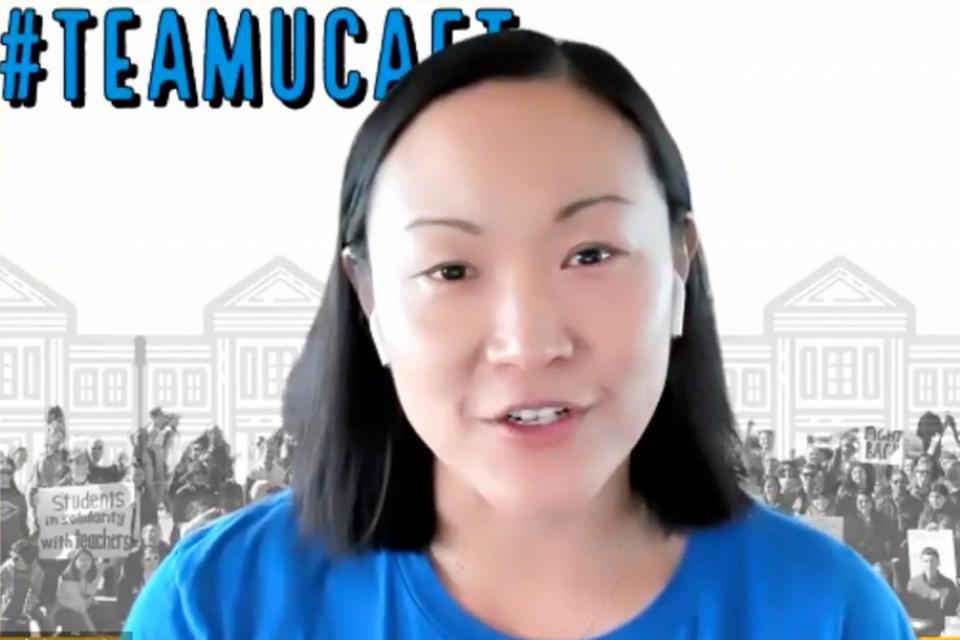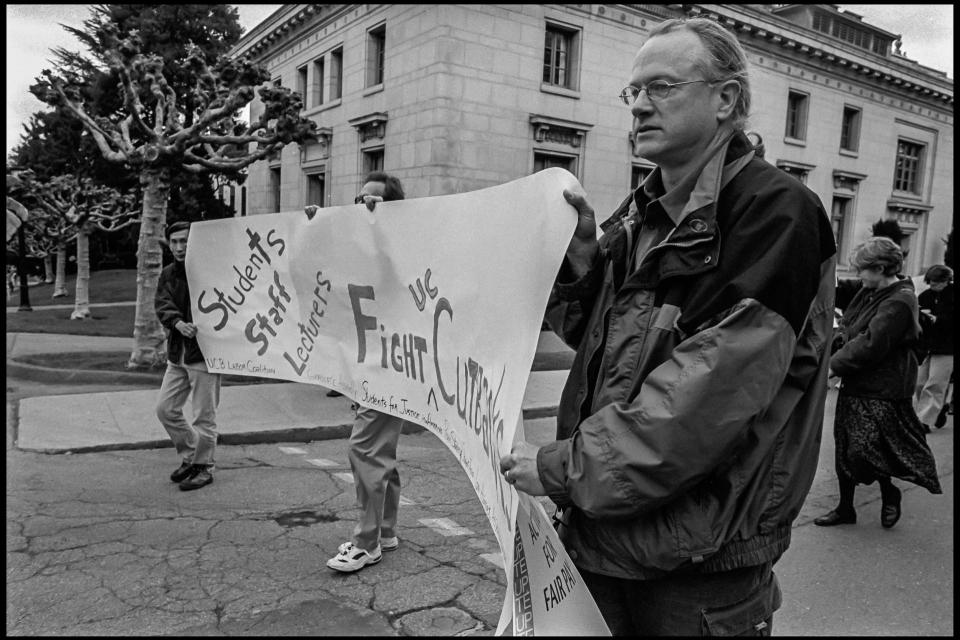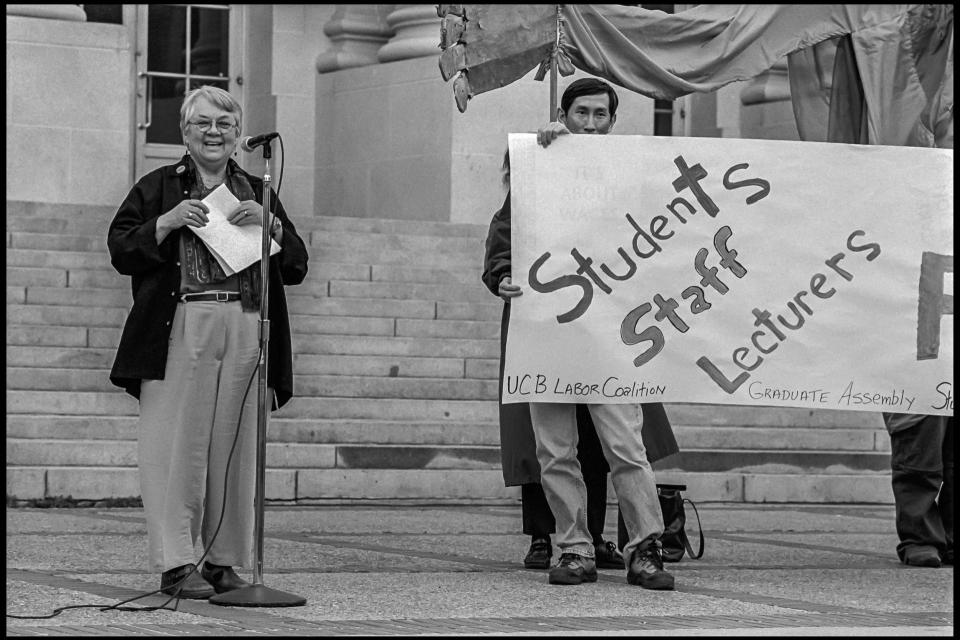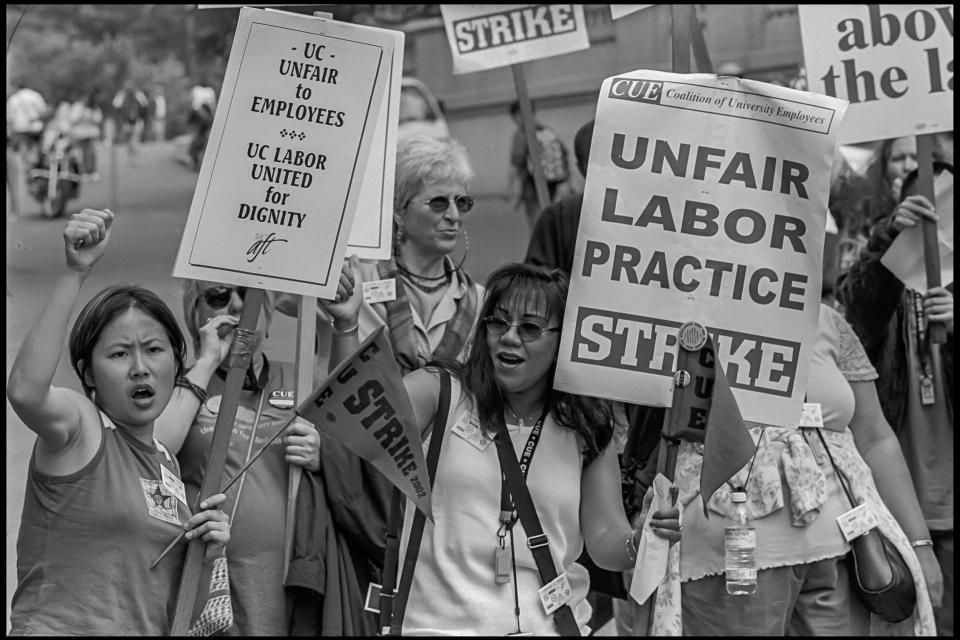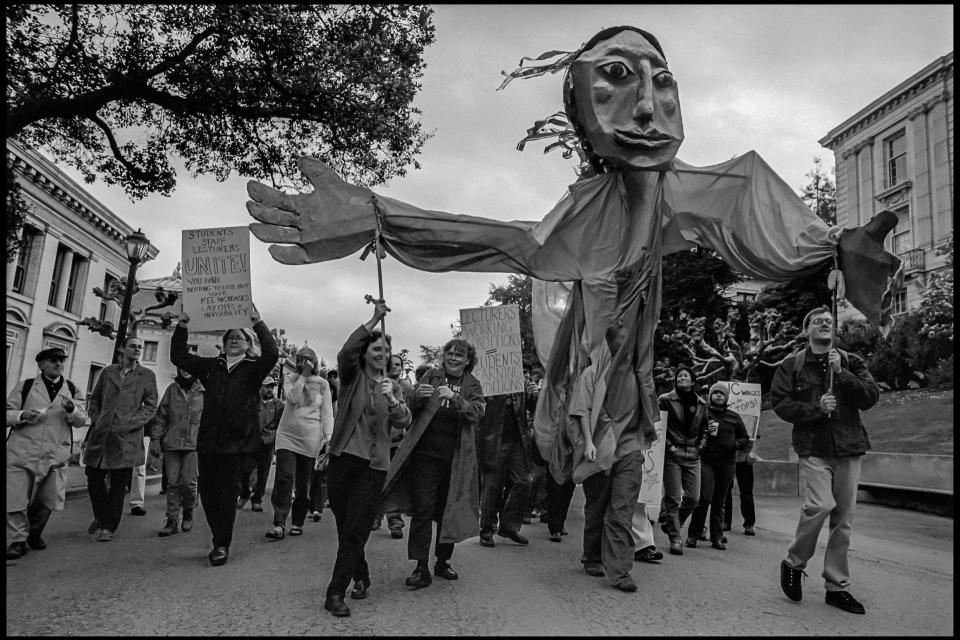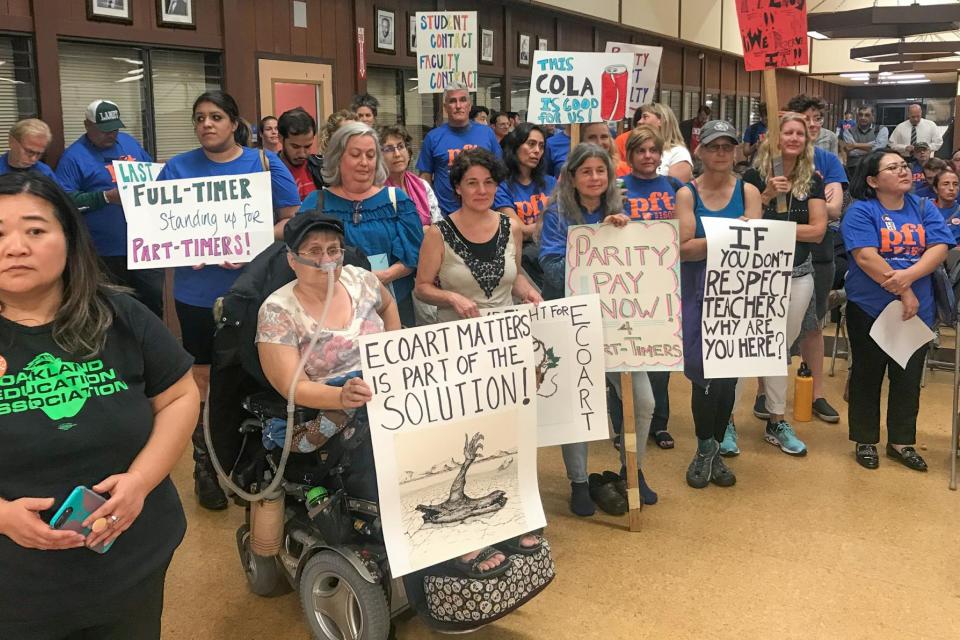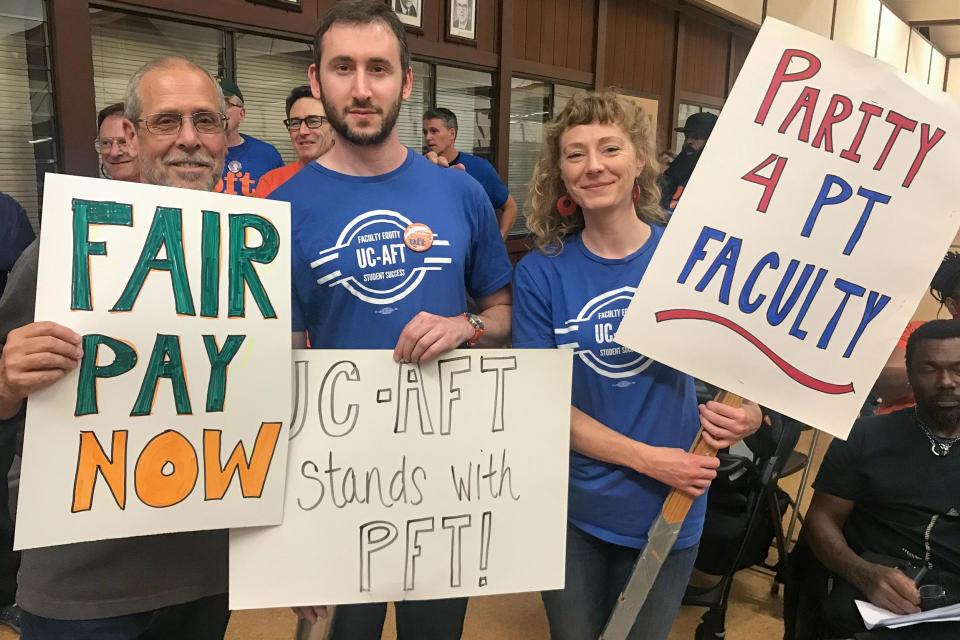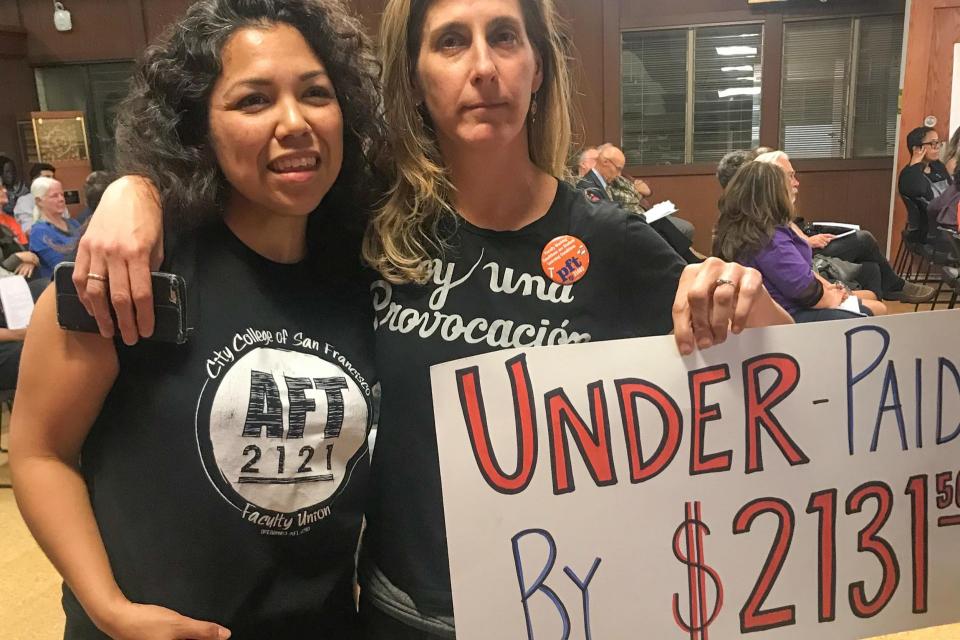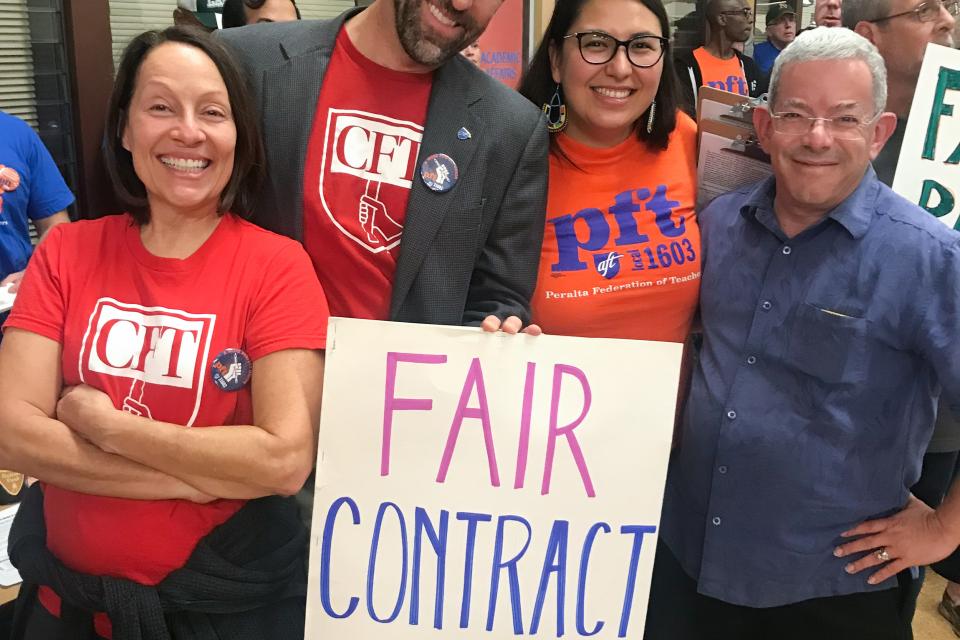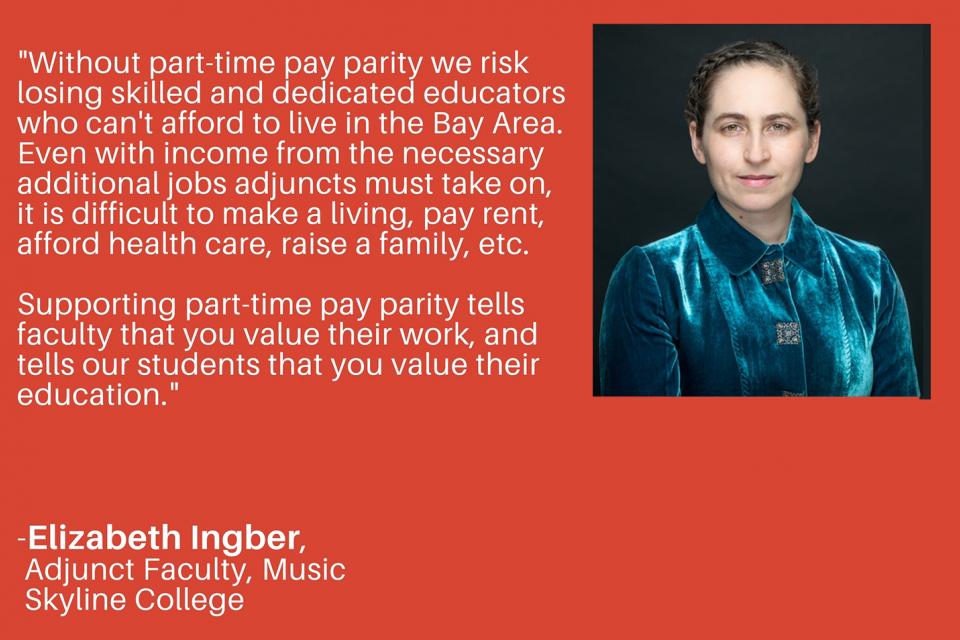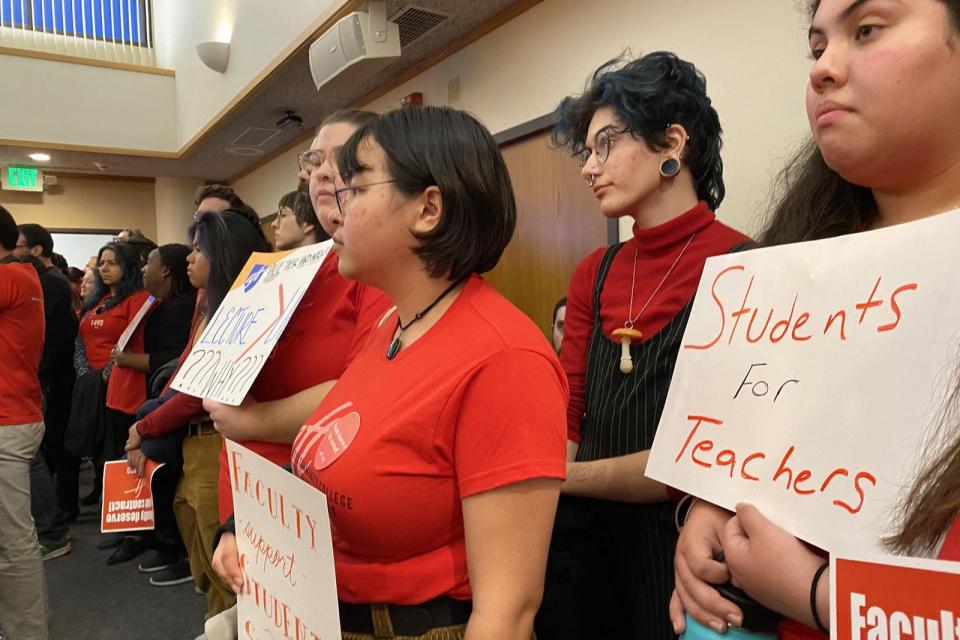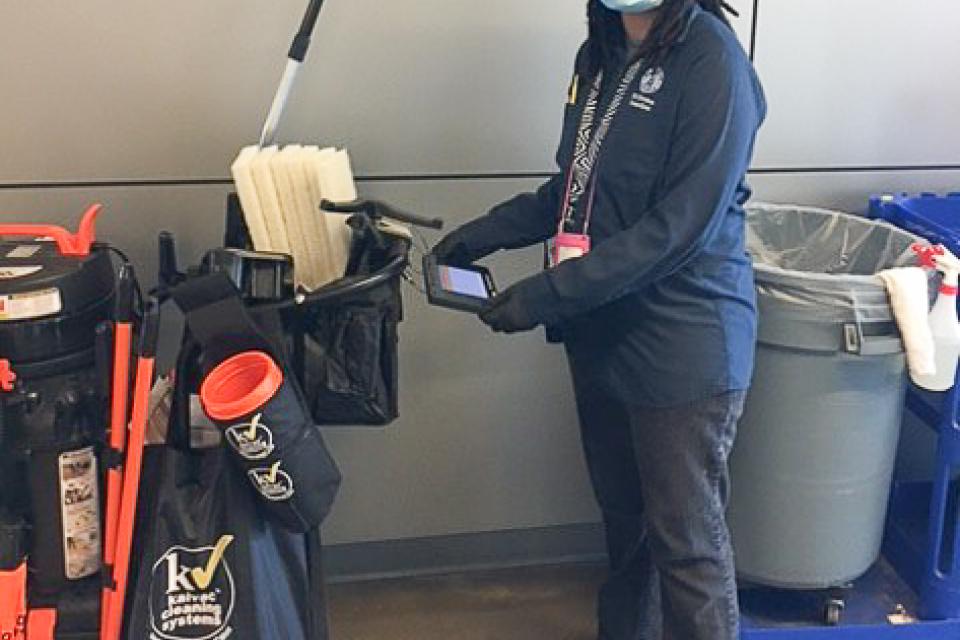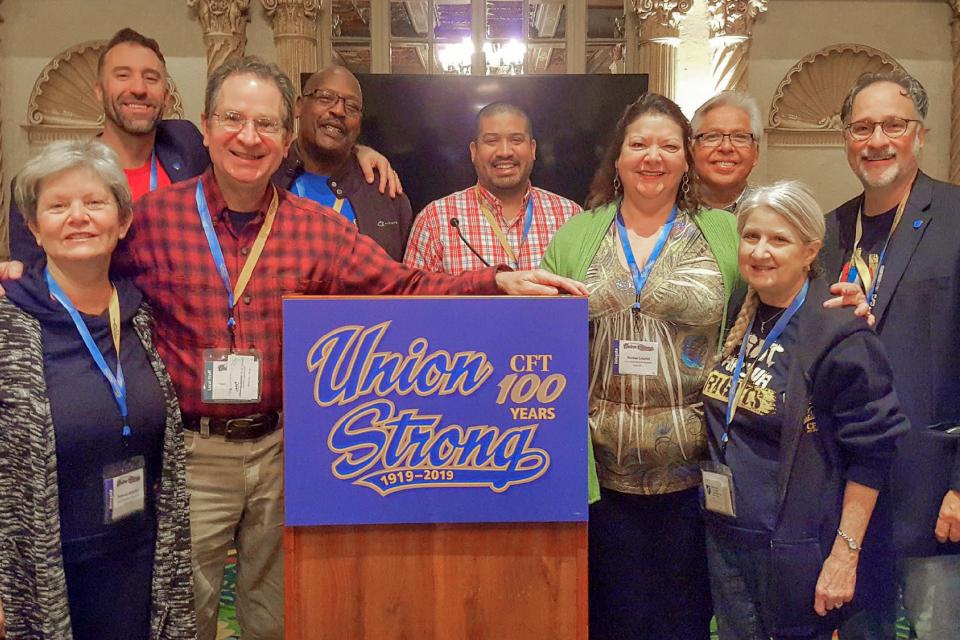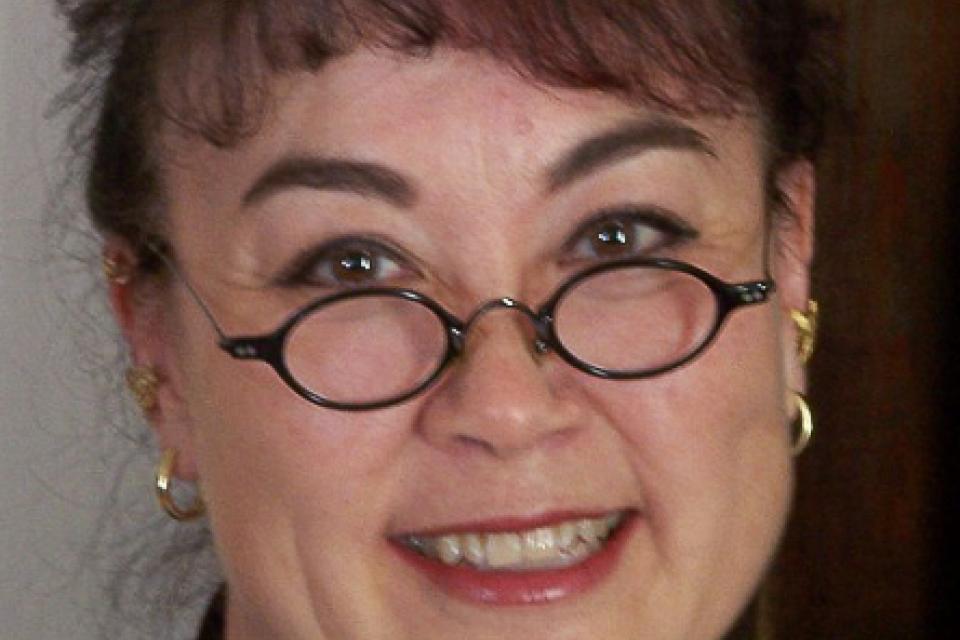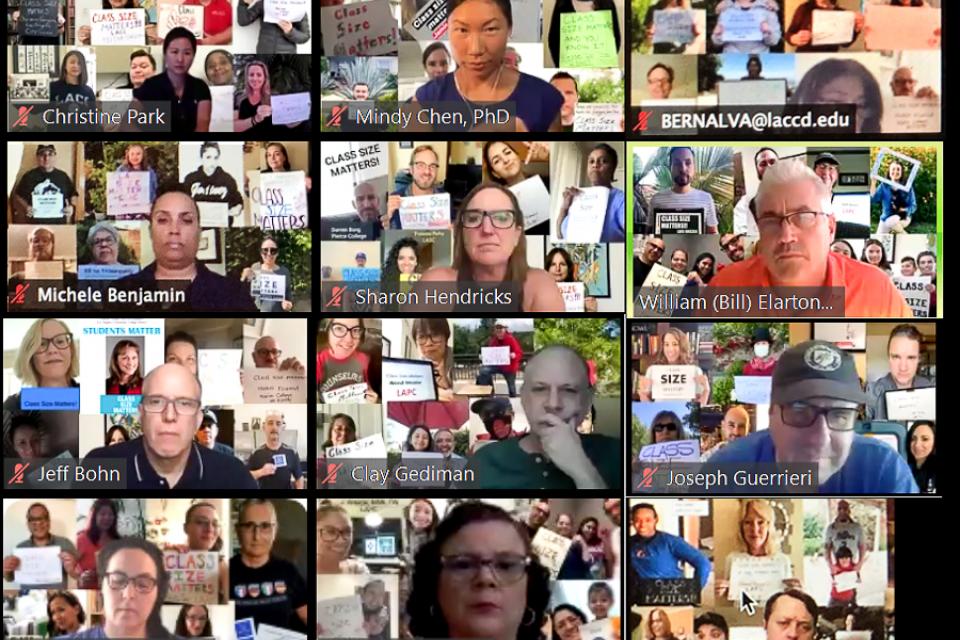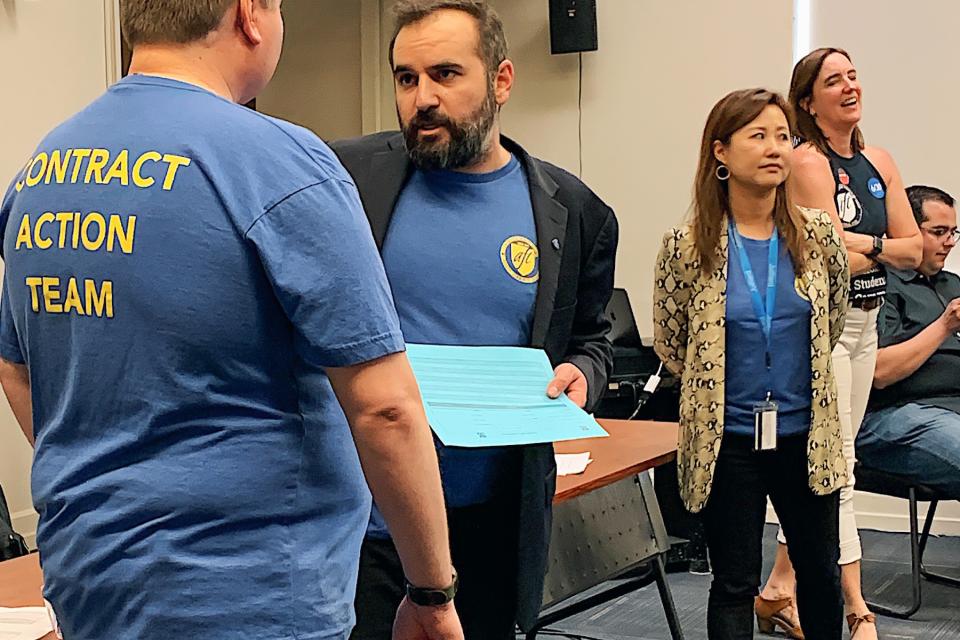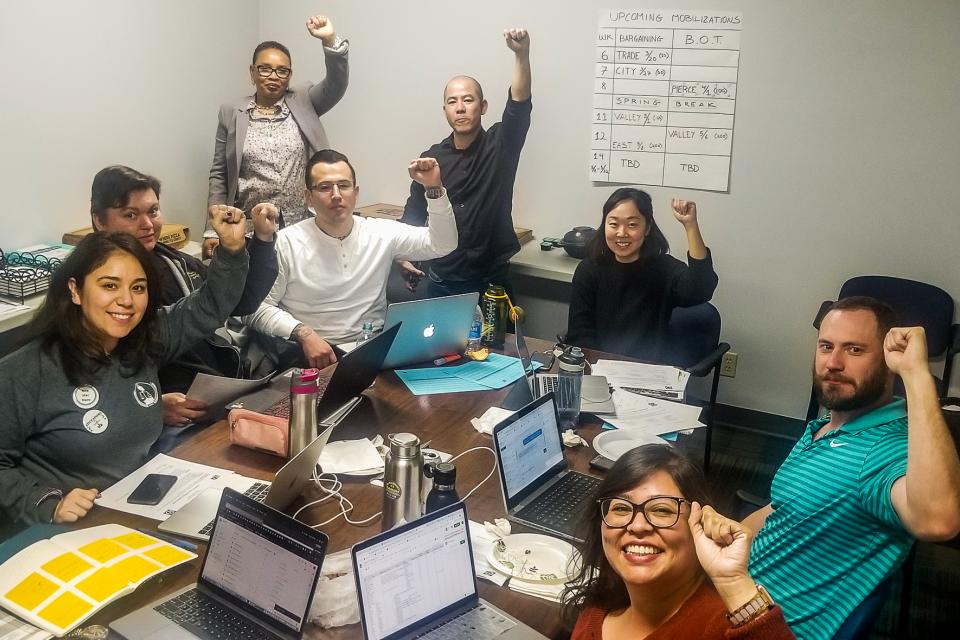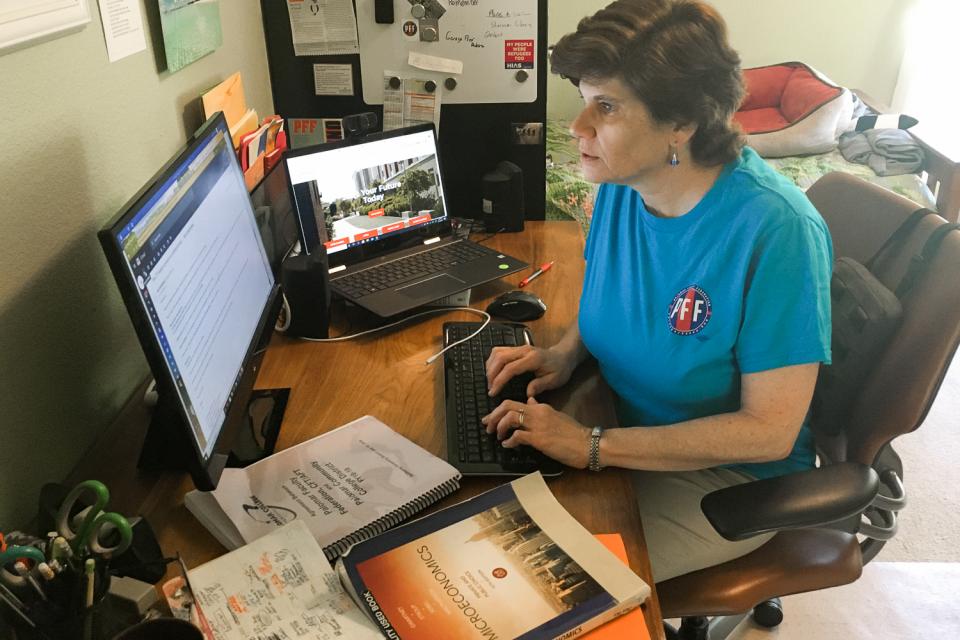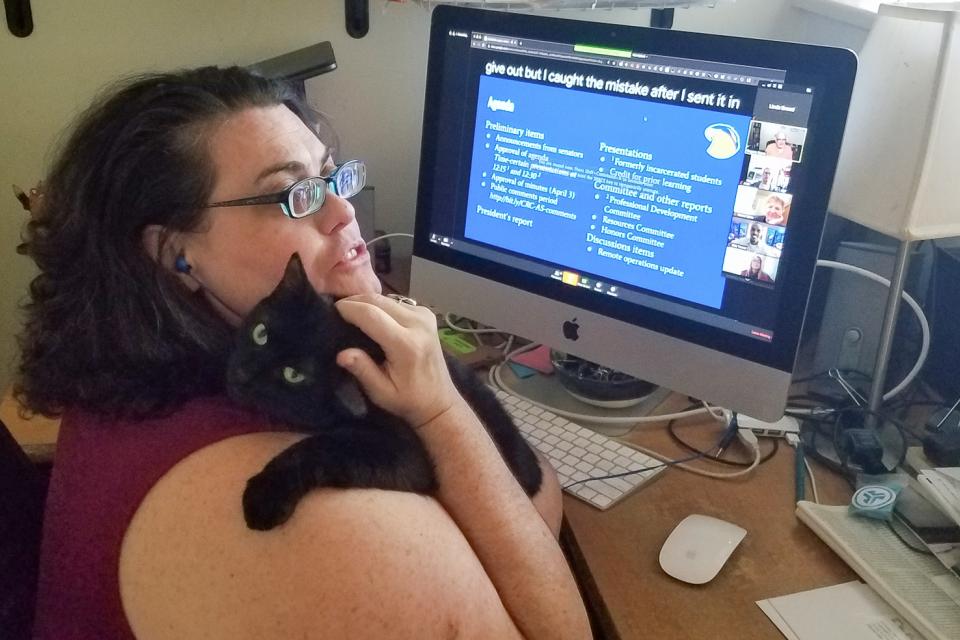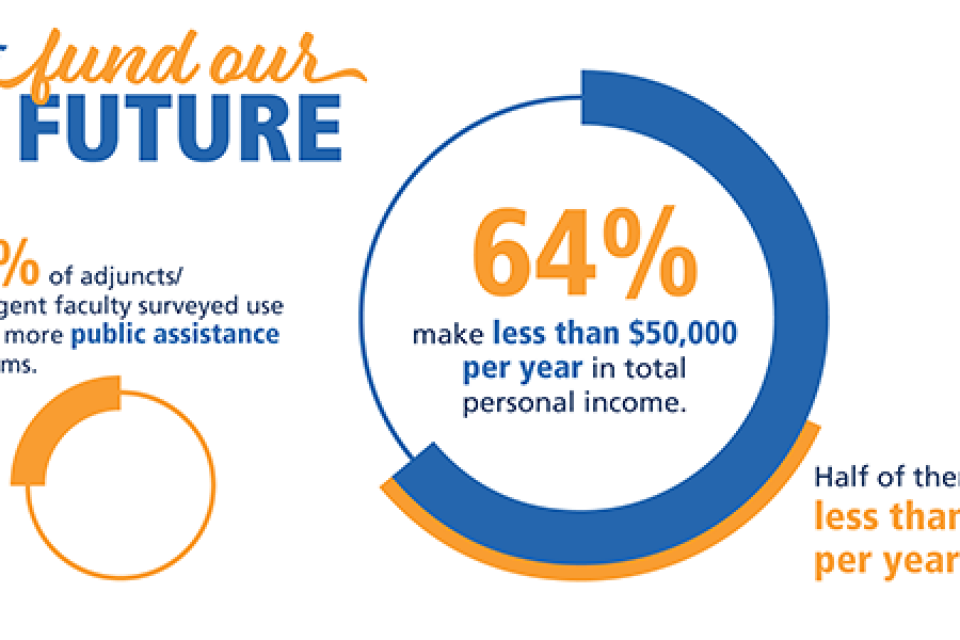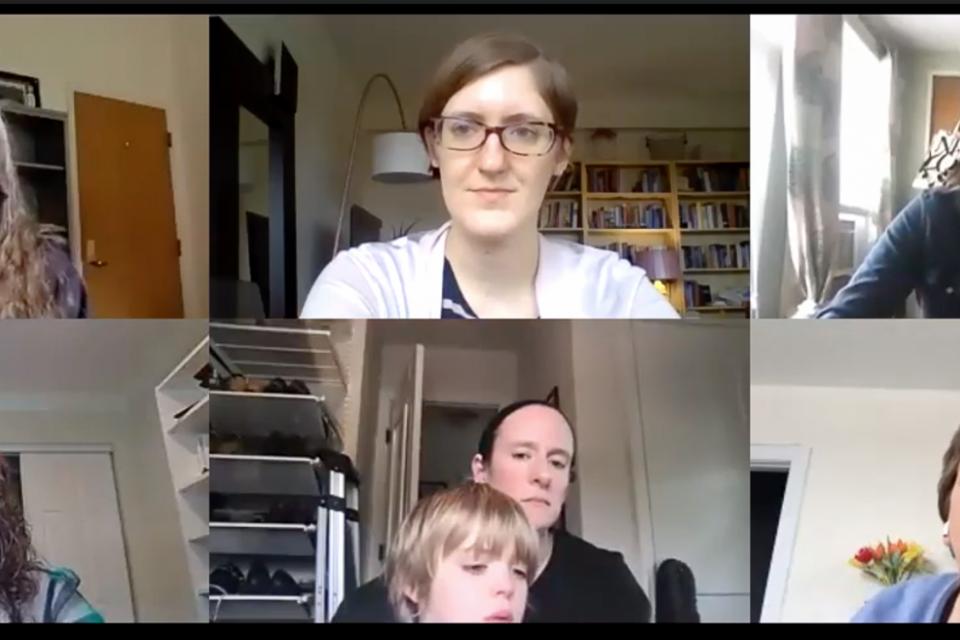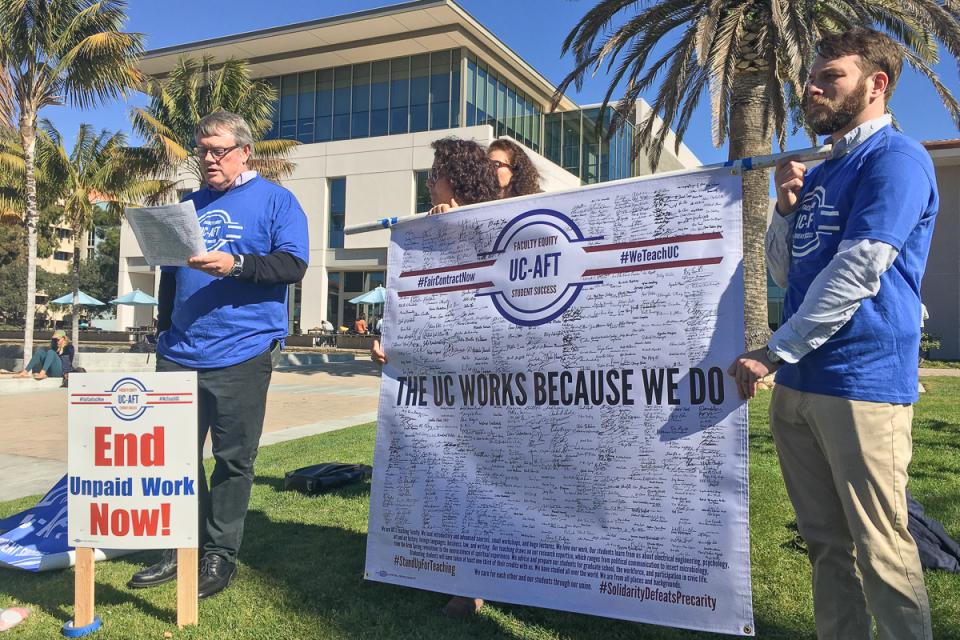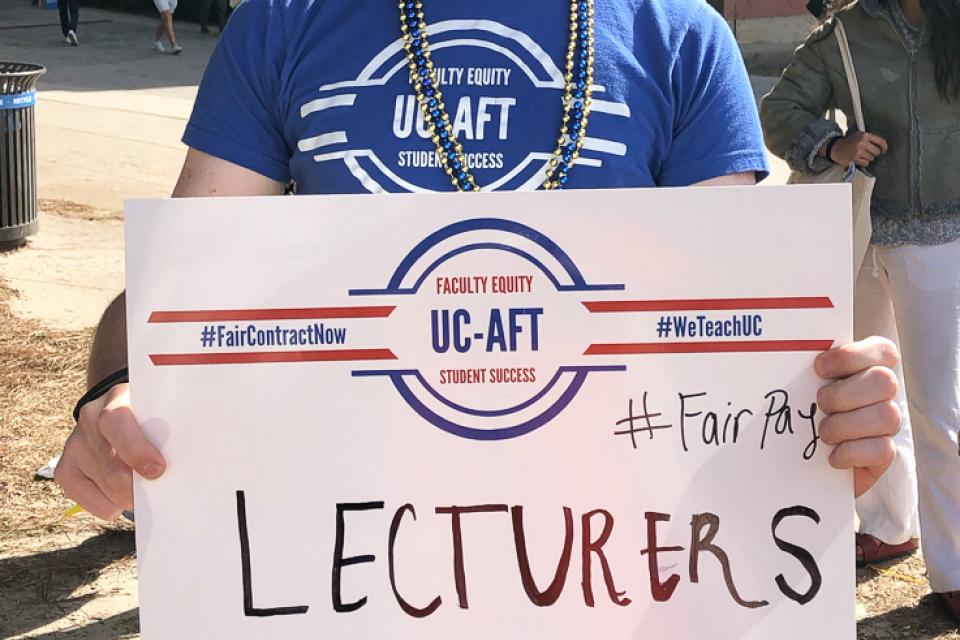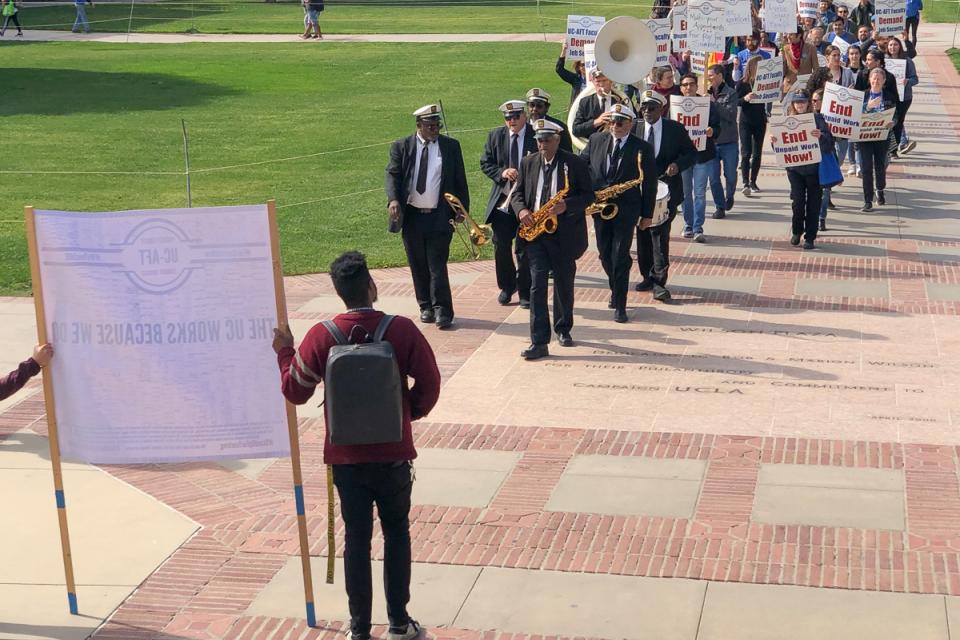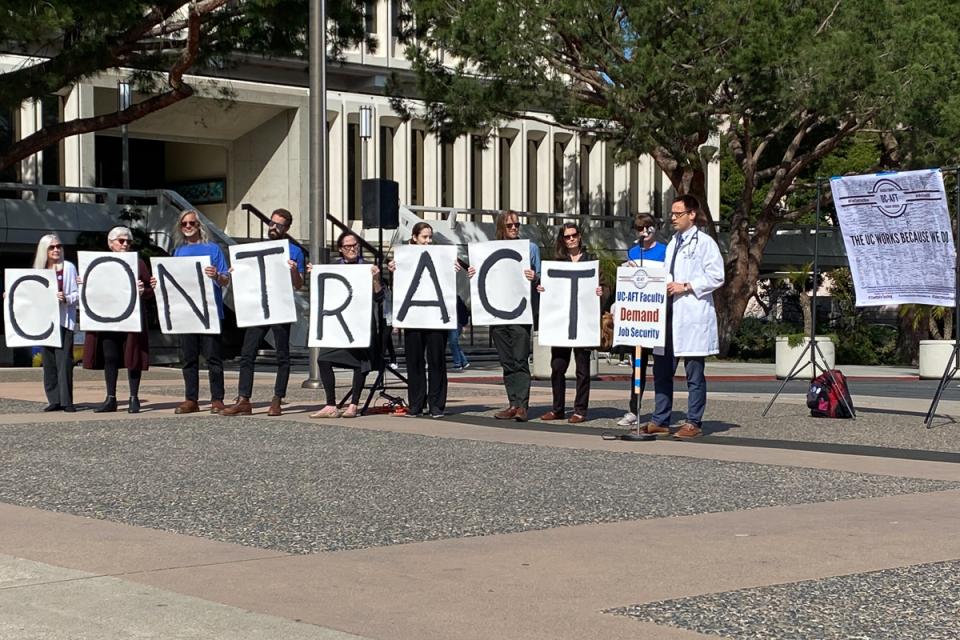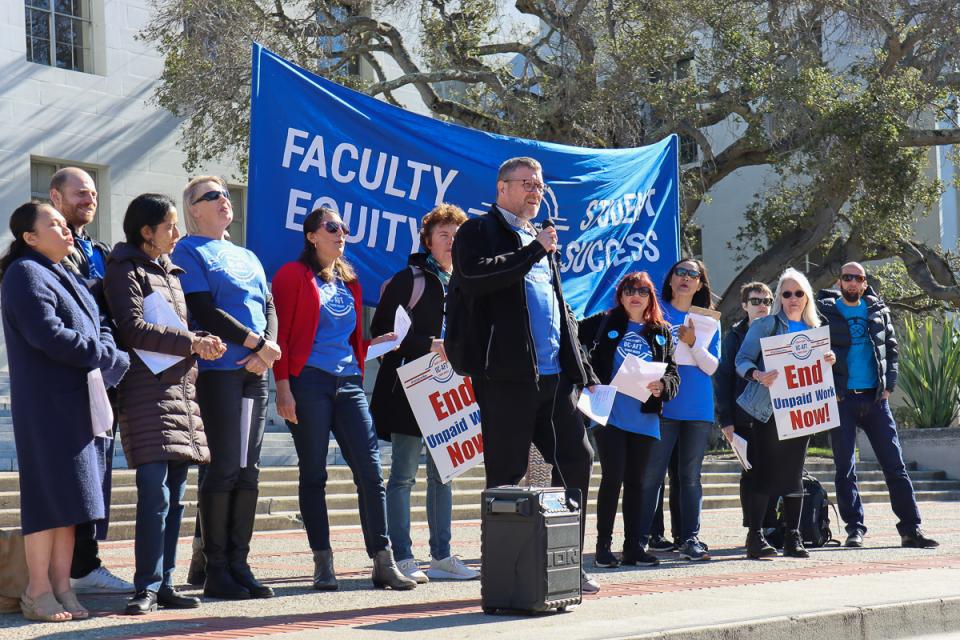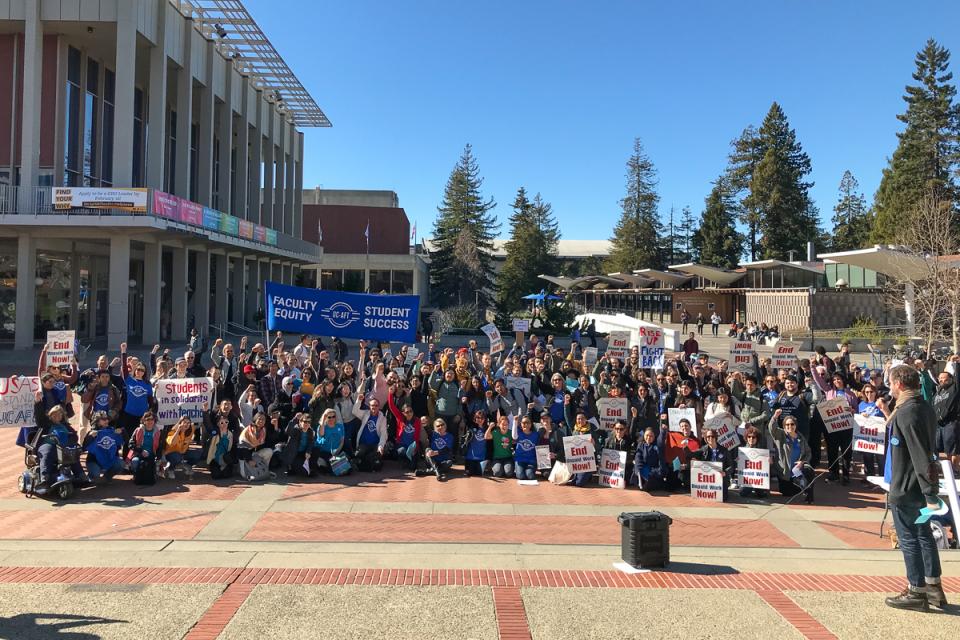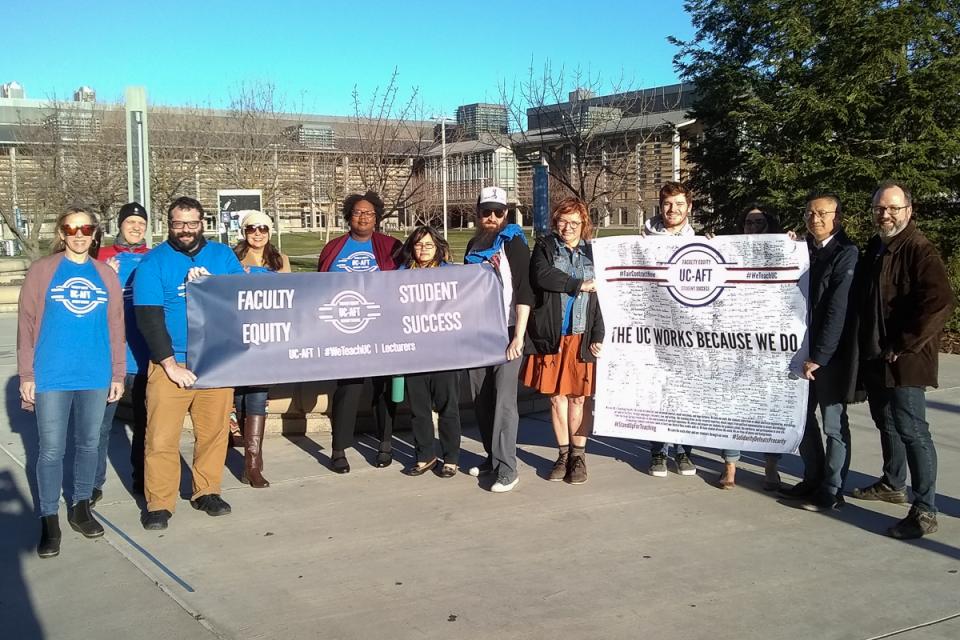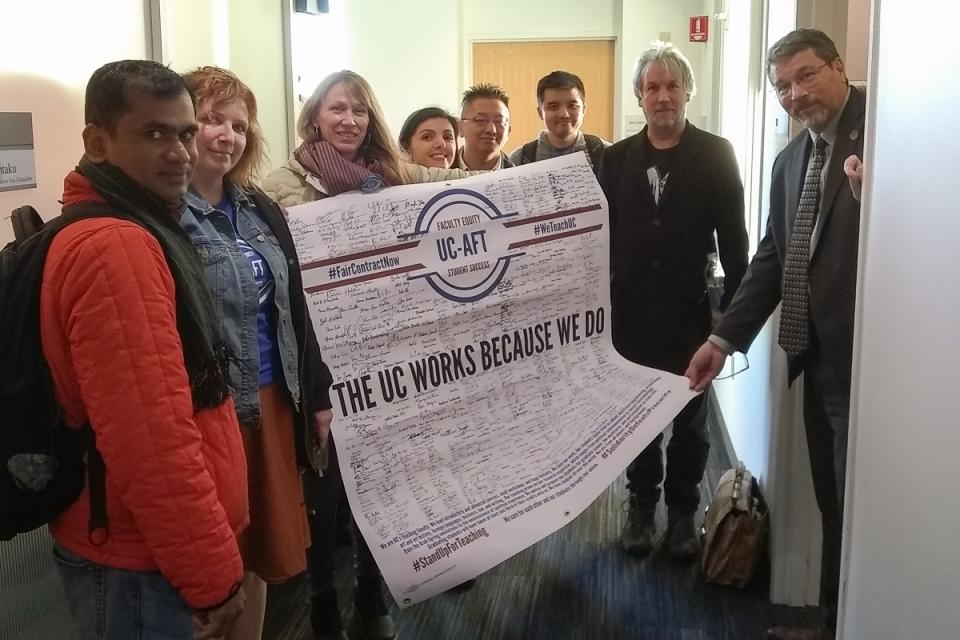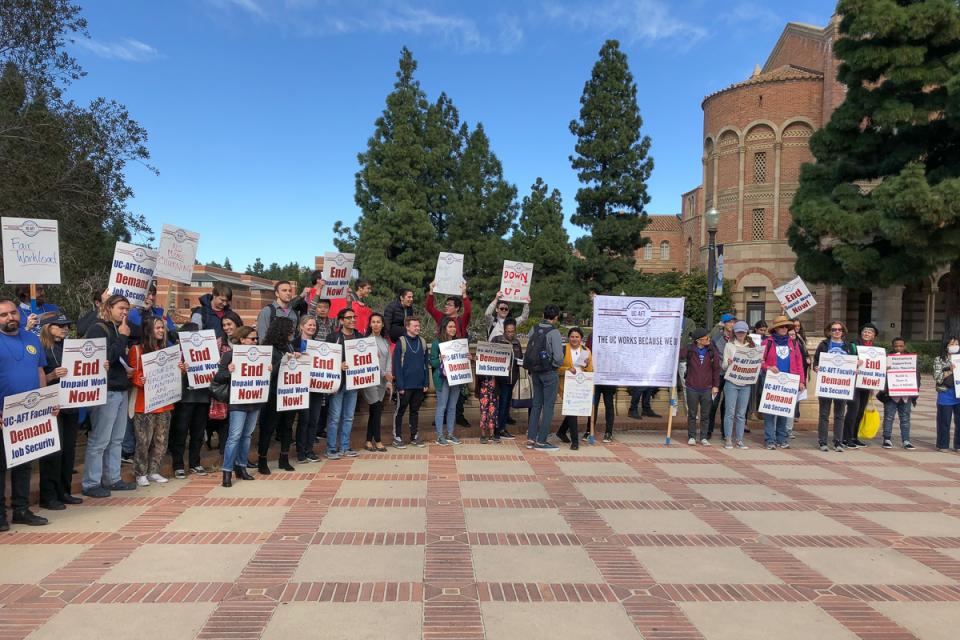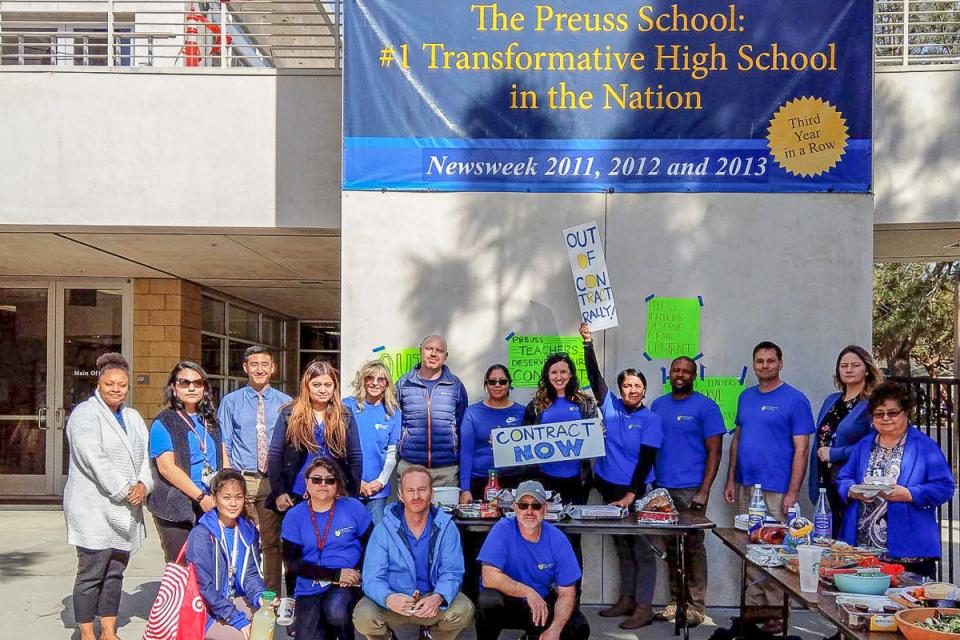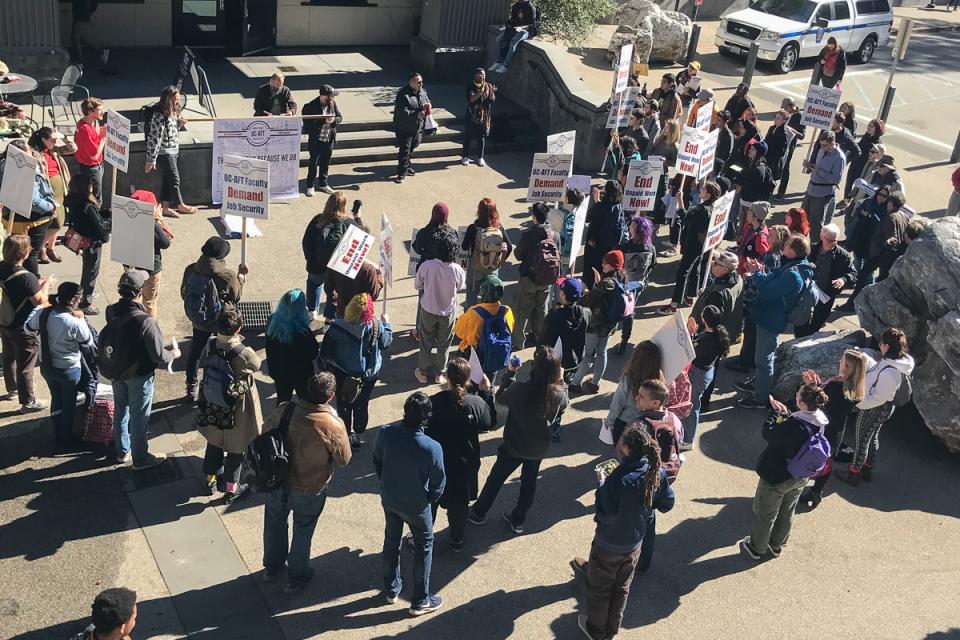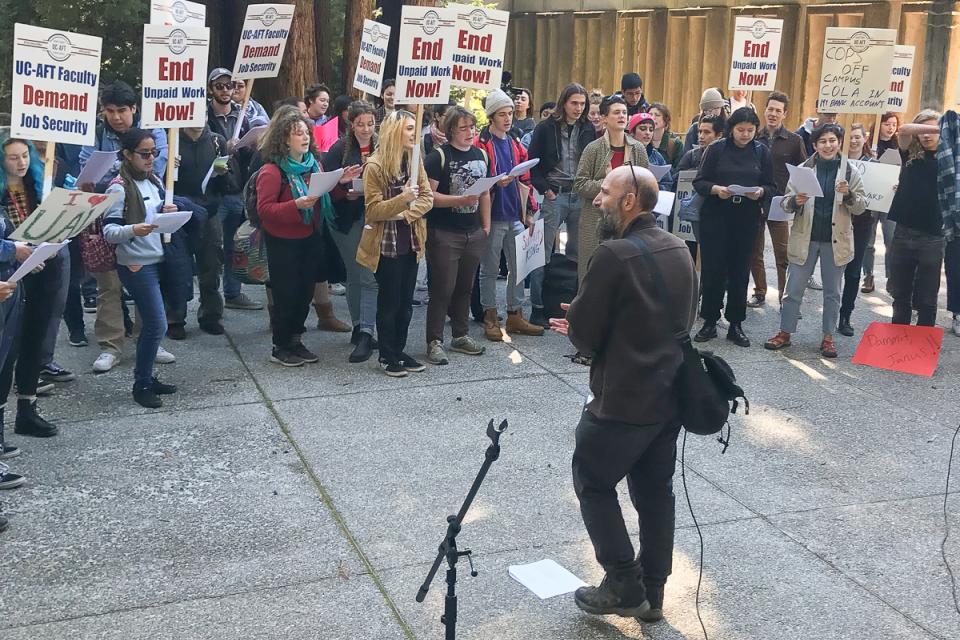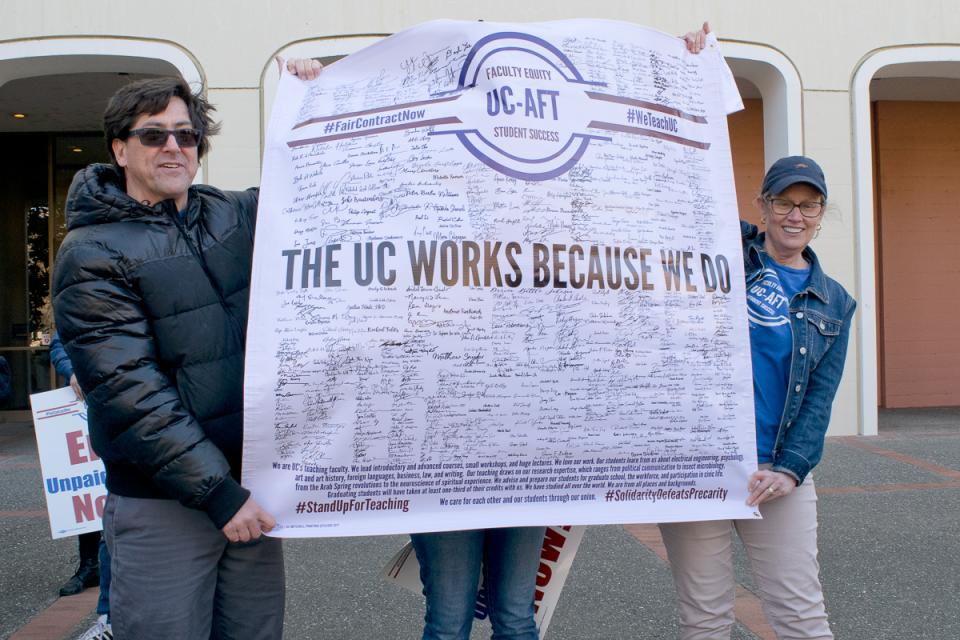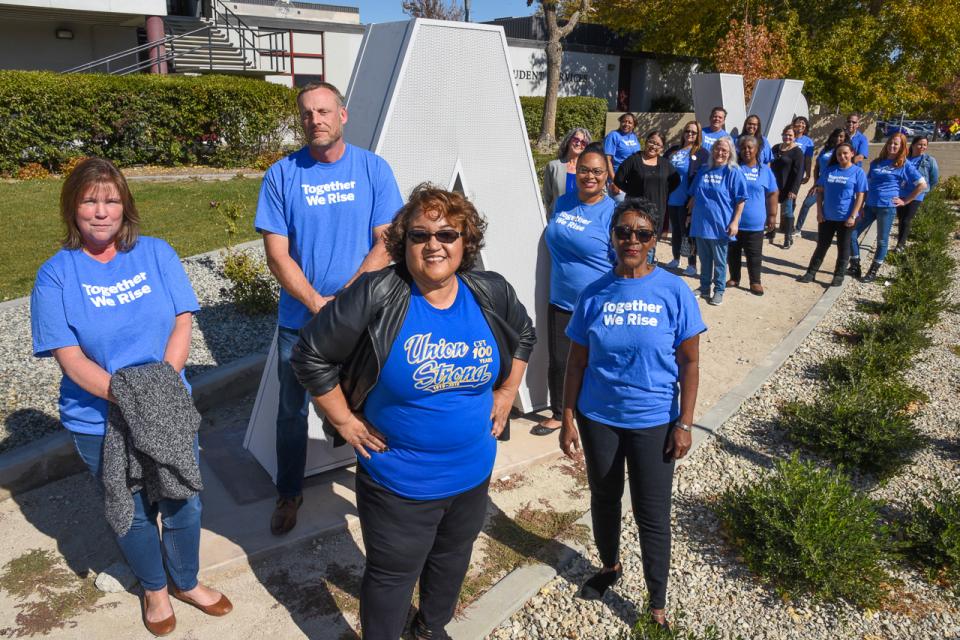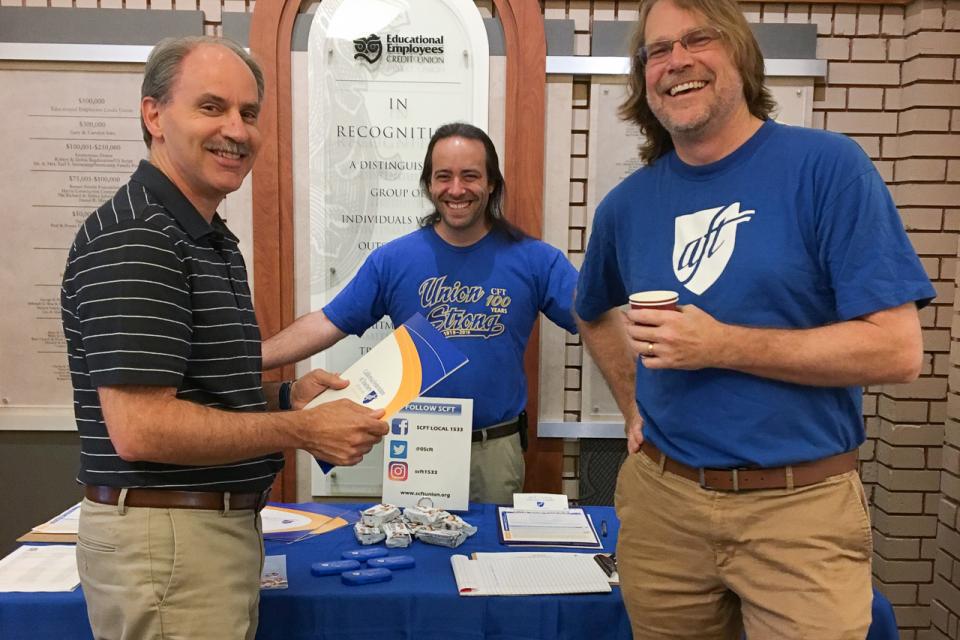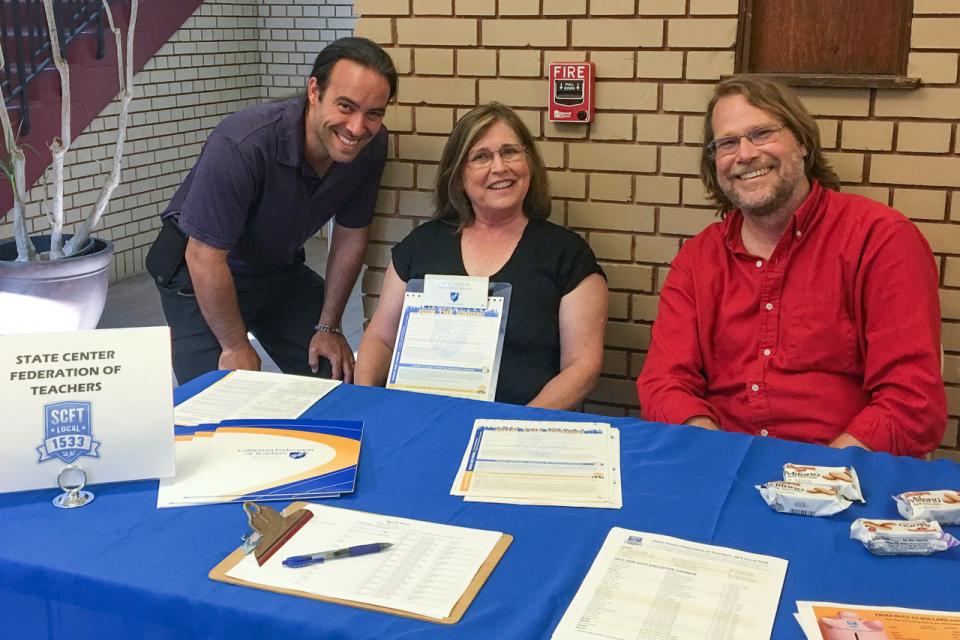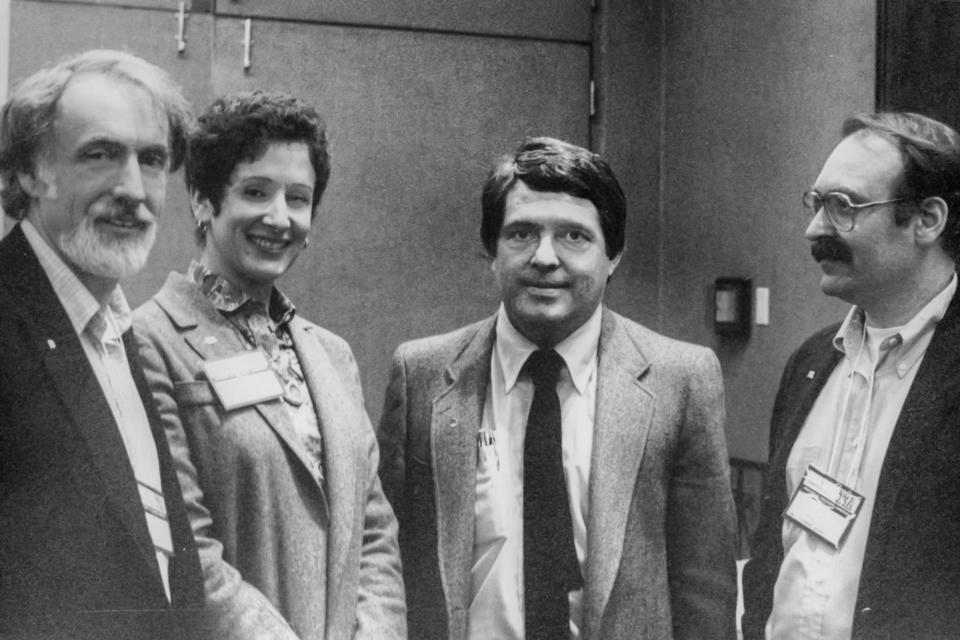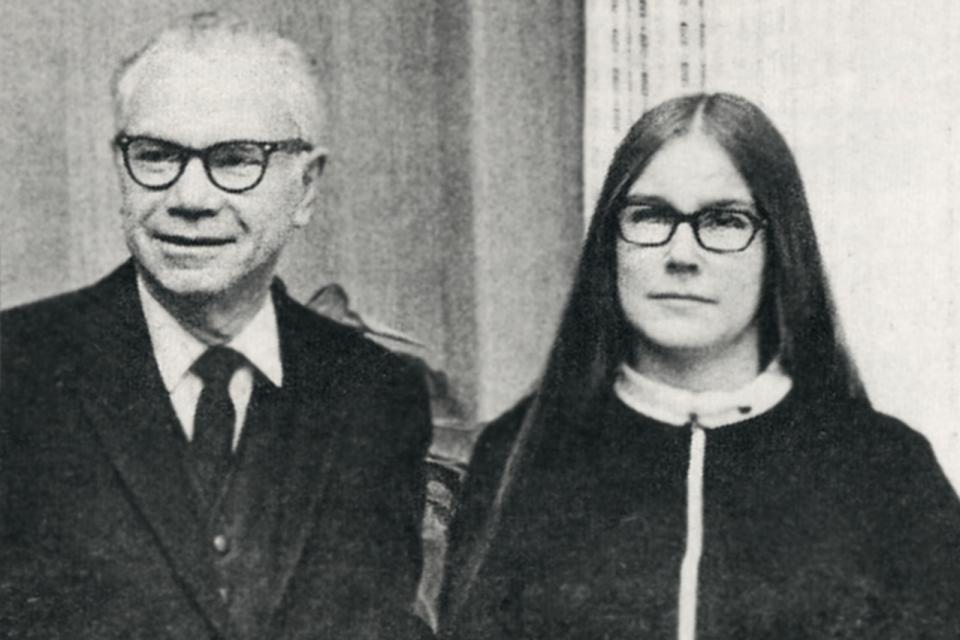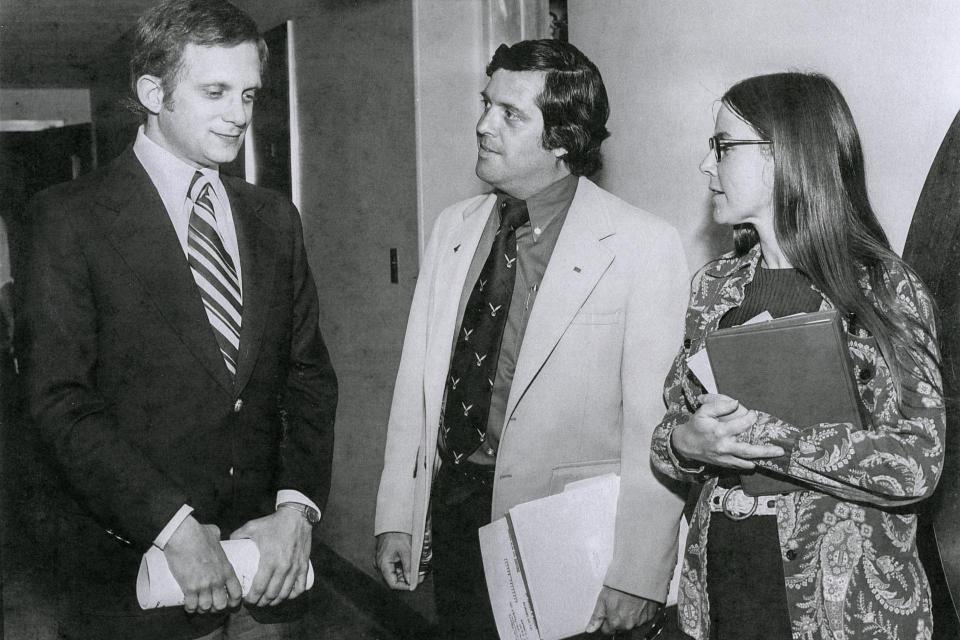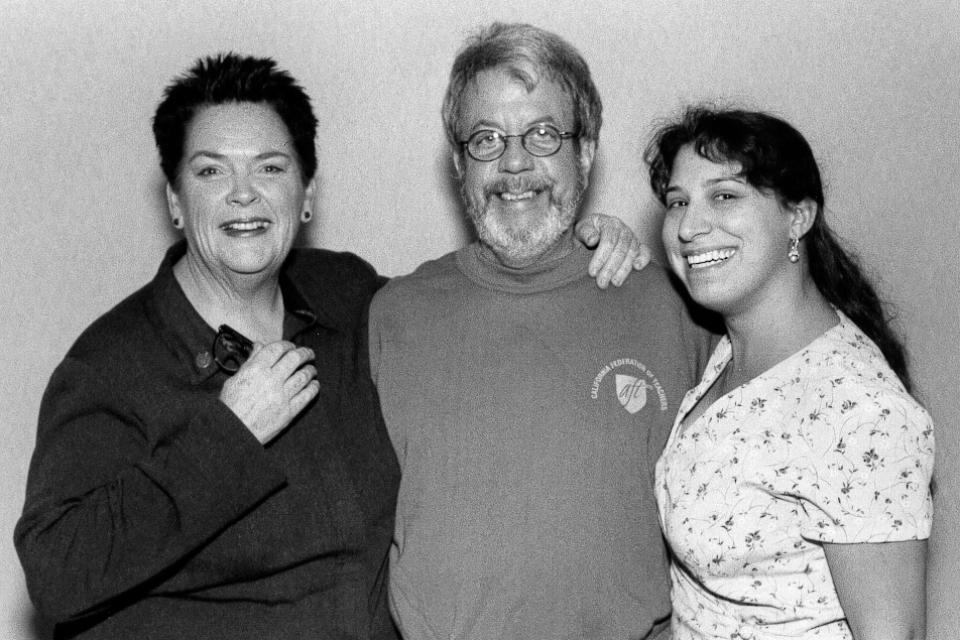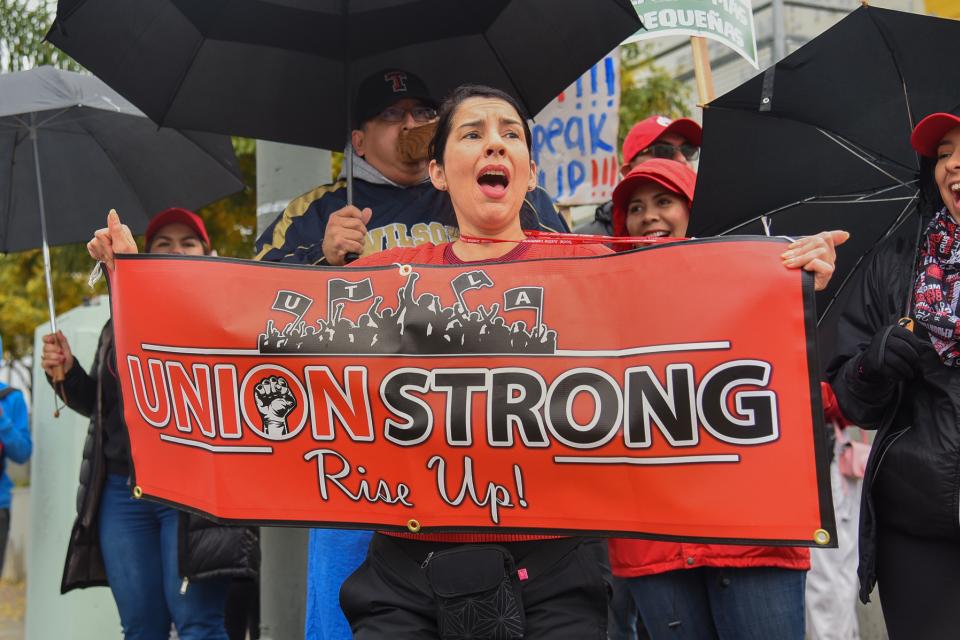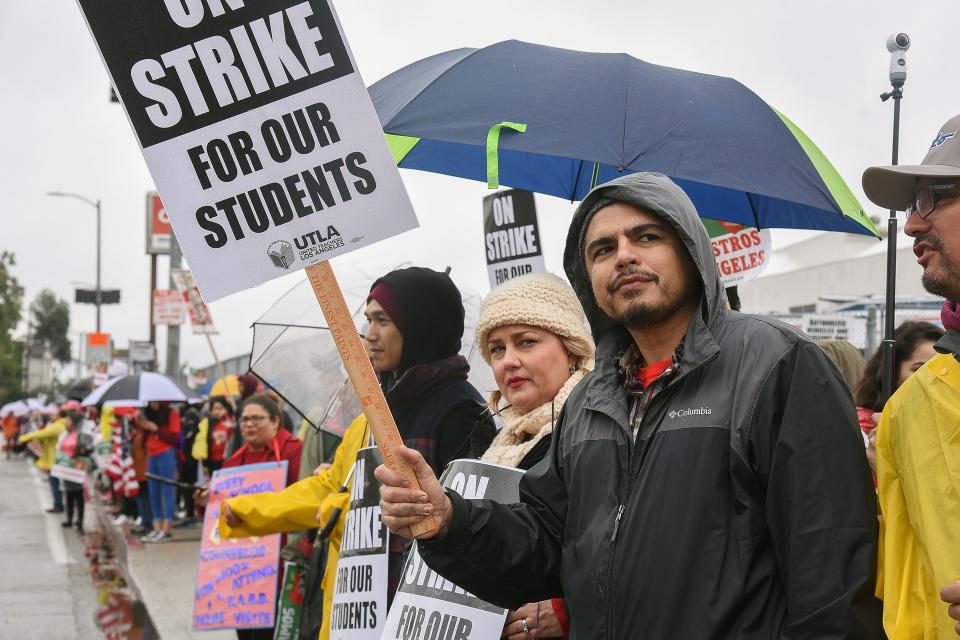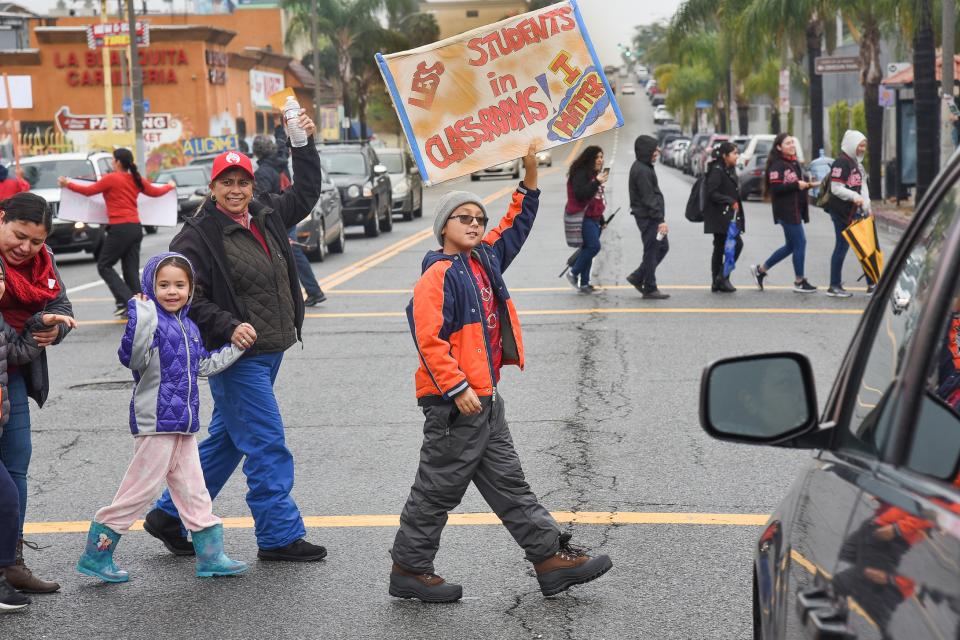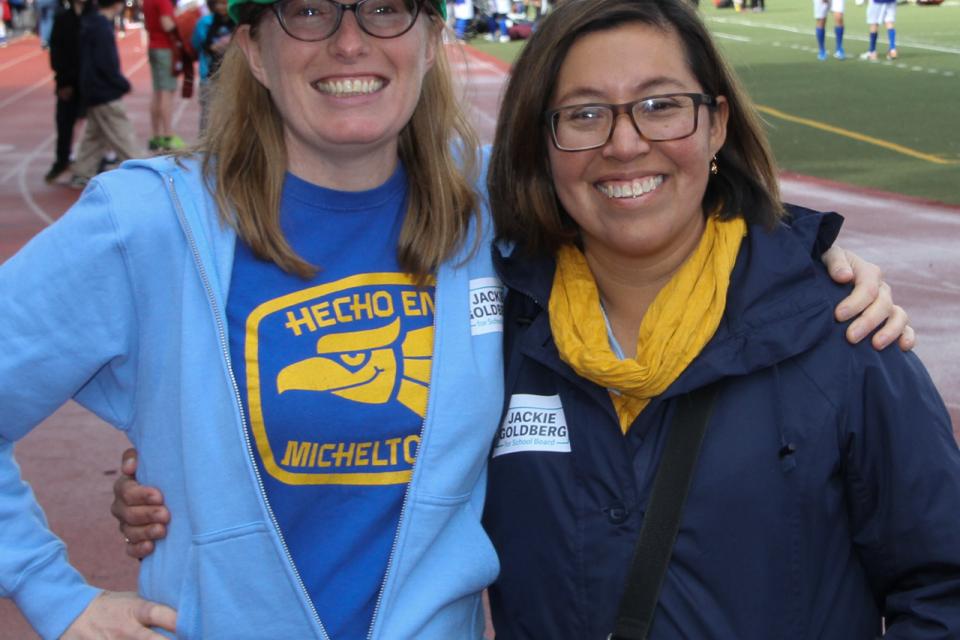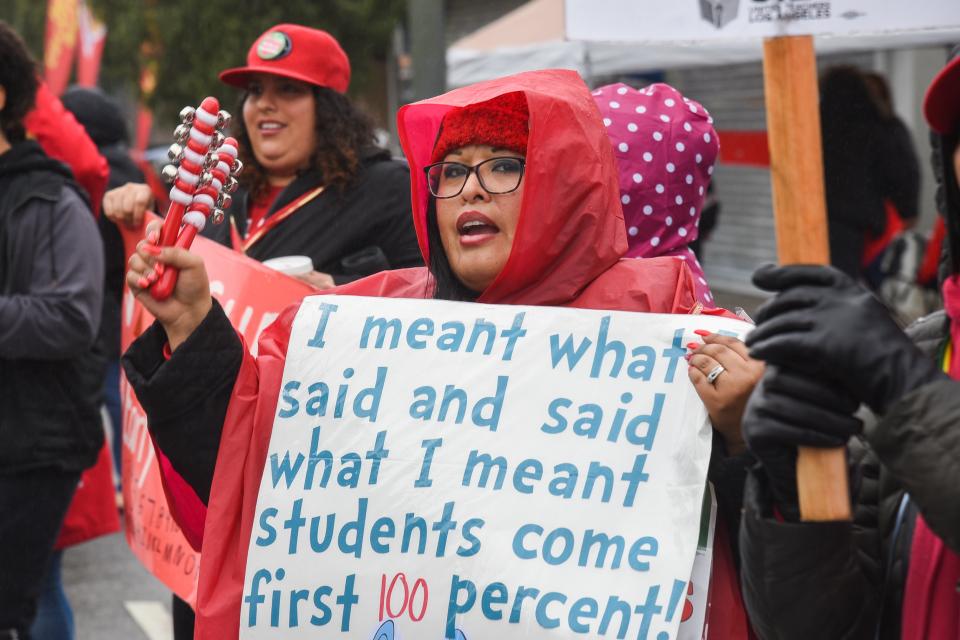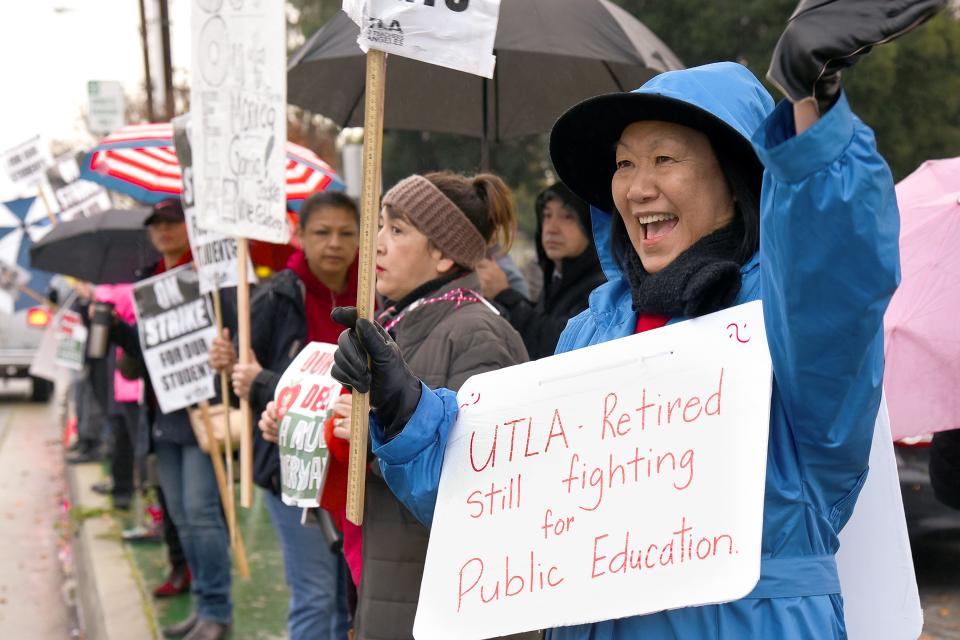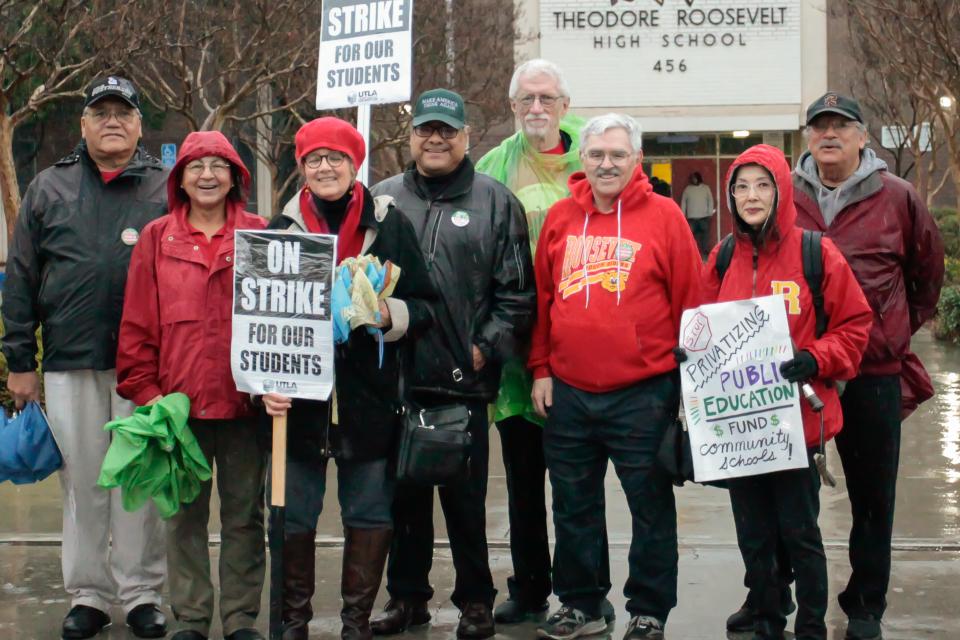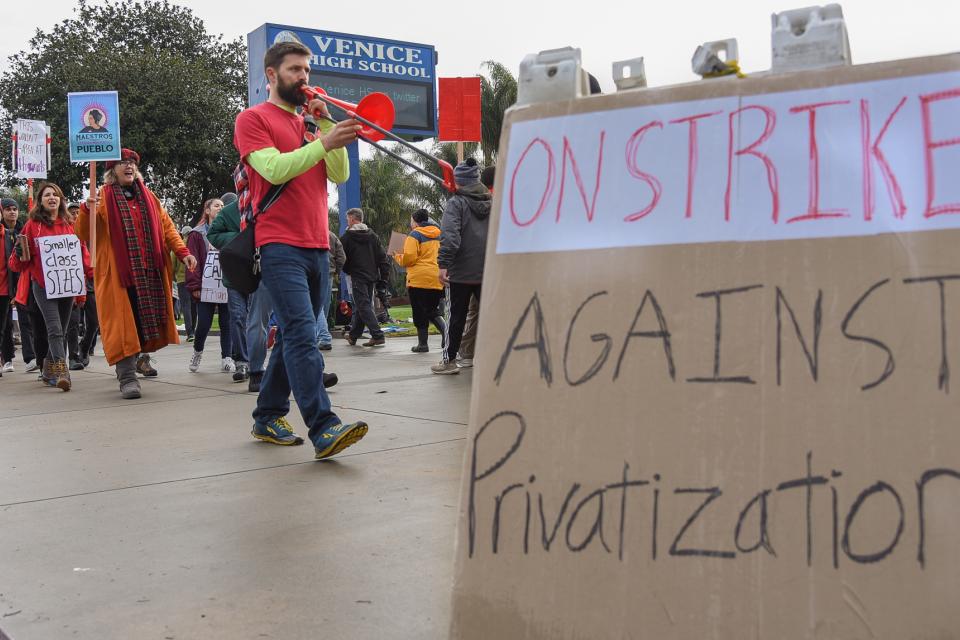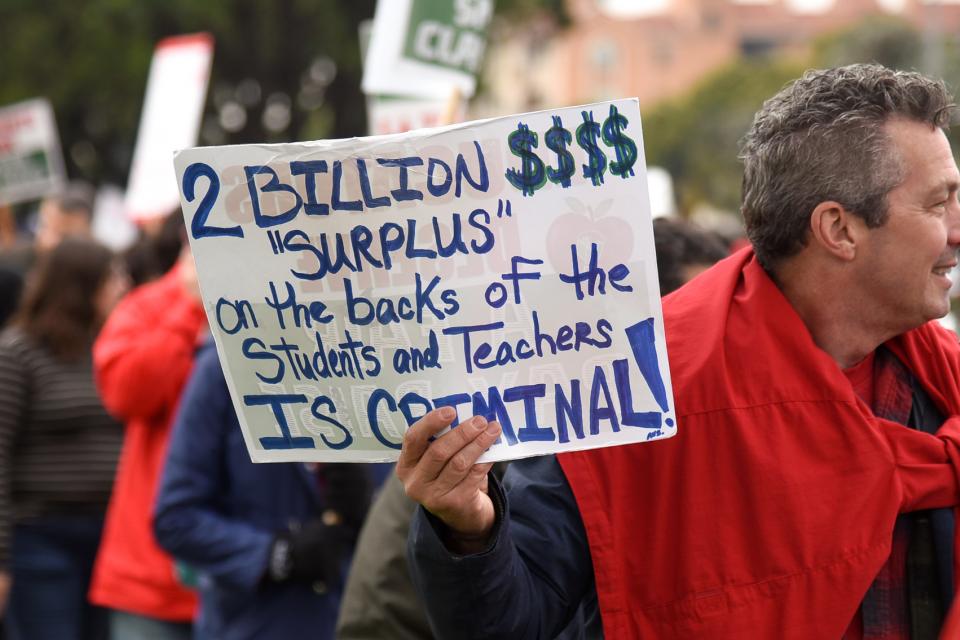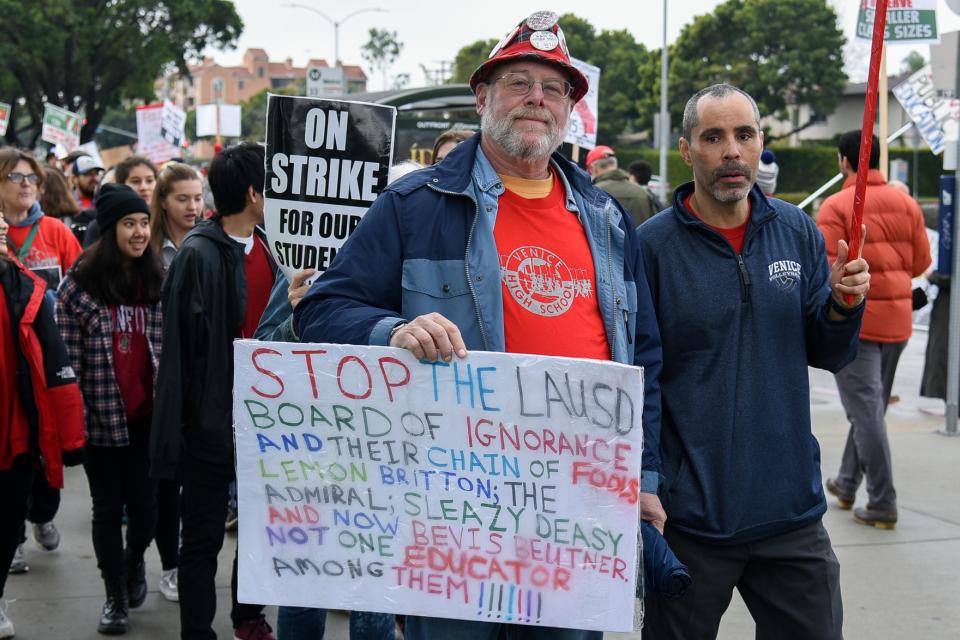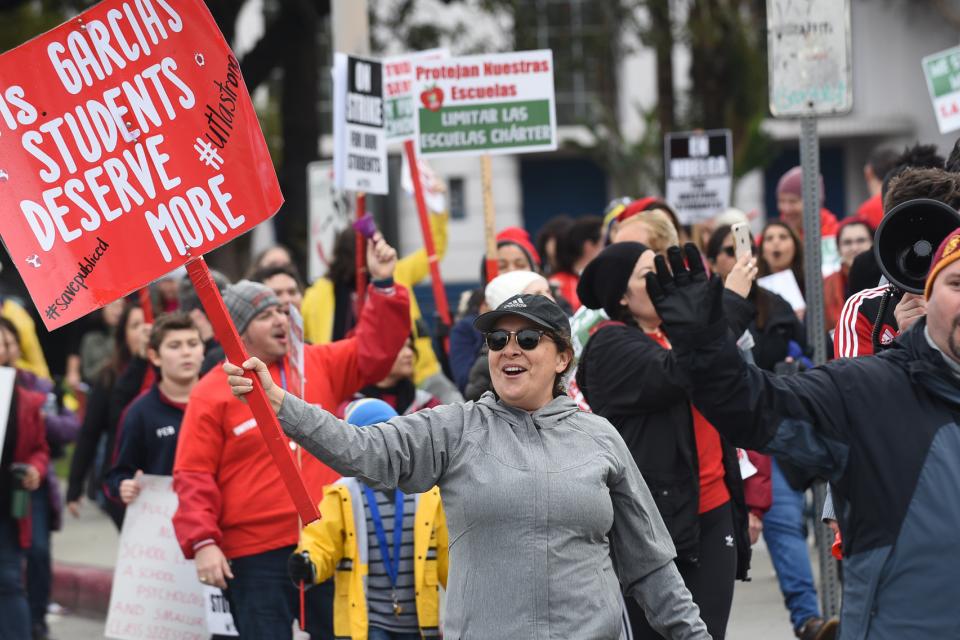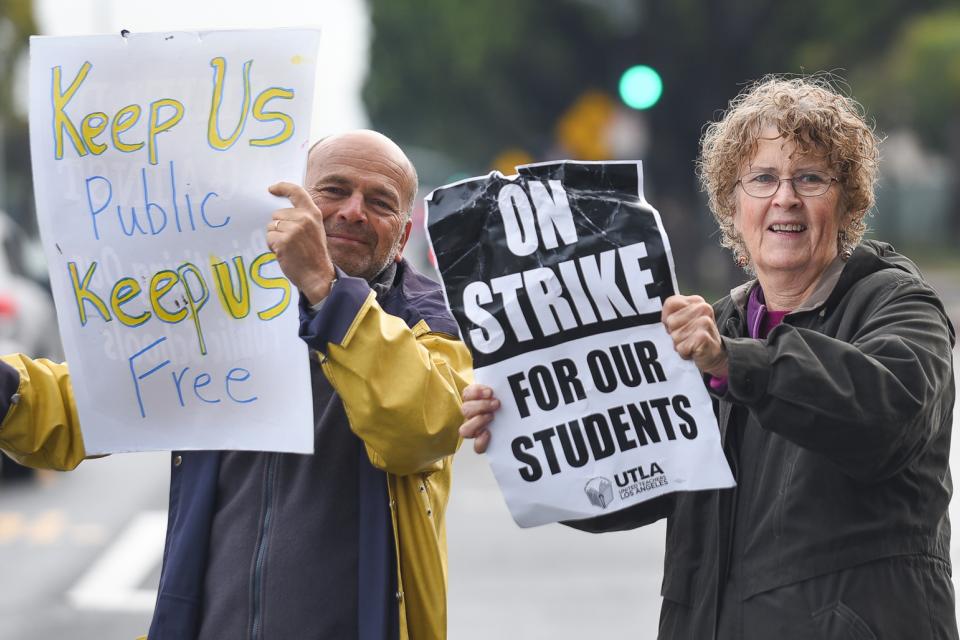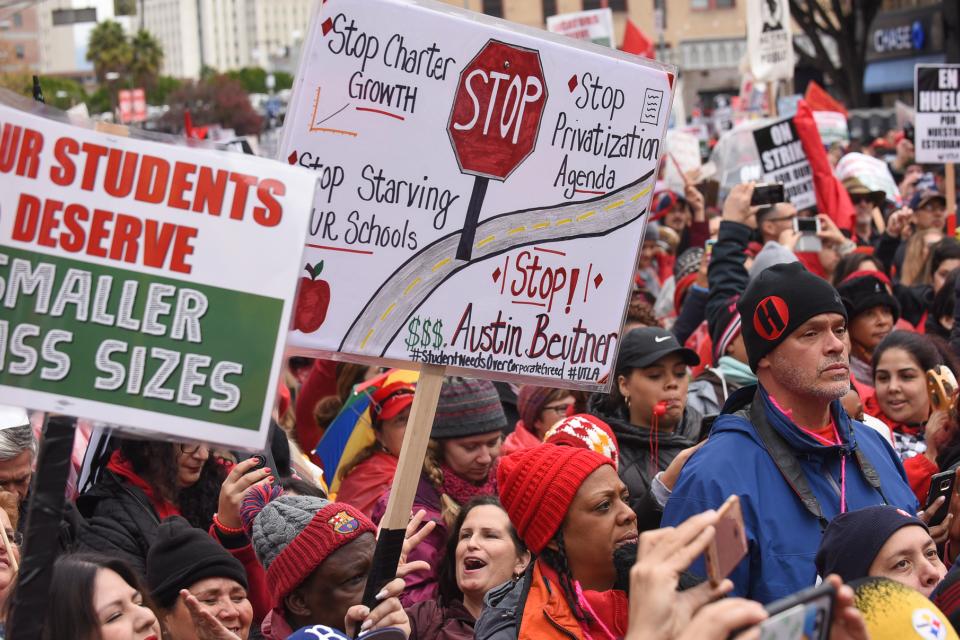Topic: Collective Bargaining
Job security still on the table for UC lecturers, members vote to authorize strike
UC-AFT keeps the pressure on for fair continuing appointments
Update: On June 1, UC-AFT members voted to authorize a strike, with a “strong majority” of nearly 7,000 members turning out for the vote, and 96% voting to authorize a systemwide strike should the UC Office of the President fail to meet UC-AFT’s collective bargaining demands.
How Peralta won the first pay parity in CA community colleges
San Mateo Federation campaign makes big strides toward parity
Equal pay for equal work. It’s a simple idea, but one that has remained all but elusive for part-time faculty, so much so that some have decried the quest for it as a Sisyphean effort. However, the recent gains made by the Peralta Federation of Teachers shows that parity is possible.
Now, Peralta pays its adjuncts at the same hourly rate for teaching and office hours as its full-time faculty — a first in the California Community College system.
Pass the PRO Act: Empower workers to organize and bargain
Call your senators now!
Union members have been standing up for dignity and a voice on the job. Please join the AFL-CIO to pass the Protecting the Right to Organize (PRO) Act. Reach out to your U.S. senators and urge them to pass this crucial worker empowerment legislation. You can call your senators at 866-832-1560 or by using this link.
With COVID on campus, strategic action saves classified jobs
Unions save graveyard custodial shift, defeat layoffs
El Camino College has been slowly resuming activity. Nursing, auto repair, construction and other “essential classes” returned to the Torrance campus in late September, along with scores of custodians, groundkeepers, computer techs and facilities staff.
Returning to normal is another matter. Administrators are trying to eliminate the night shift, even though “graveyard” is typically the busiest time for custodians. Meanwhile, four COVID cases on campus have underlined the pandemic’s ongoing threat, as well as the importance of properly trained and equipped cleaning crews.
Peralta reaches 100 percent pay parity; locals win distance education support
From course conversion stipends to health benefits extensions
In spite of the pandemic, a number of local unions won big gains for adjuncts, from parity pay to distance education, to the preservation of healthcare for adjuncts with reduced loads. These wins are especially significant at this time in which revenues are falling and concerns over future budgets made many administrators skittish to bargain.
Facing most difficult conditions in decades, unions meet the moment
Organizing for equity at work, home, and in communities
Strong organizing has meant workplace gains and more political power for faculty during the pandemic, with members showing up in larger than ever numbers to virtual bargaining sessions and meetings.
Adjunct faculty leaders organize, meet challenges of pandemic
The union picture — now and in the months ahead
The ongoing COVID-19 experience for part-time instructors has demonstrated their great collective strength and resiliency, despite limited pay, benefits, job security, and often minimal support.
Several local union leaders — who are part-time faculty — report that beyond the initially hectic and at times frenzied process of transitioning to remote instruction and services, faculty have more or less still been able to teach a semblance of their face-to-face course.
“An Army of Temps” — AFT’s call to action
New AFT report attaches numbers to the human crisis in higher education
Part of the tragedy of the COVID-19 pandemic is that for those who were already at risk, it has laid their situation bare. This is a part-timer reality.
“While it may seem like an odd time to be putting out the “Army of Temps: AFT Contingent Faculty Quality of Worklife Survey,” frankly, it’s about as good a time as ever to show the fragility of this workforce.”
Thousands of UC lecturers mobilize for job rights, fair salaries
Academic and blue collar workforce fight back against university’s substandard pay
When Josh Brahinsky isn’t teaching “Academic Literacy and Ethos” and “Brain, Mind, and Consciousness” classes to new students at UC Santa Cruz, the lecturer is researching bio-cultural anthropology at Stanford University, teaching at San Jose State, or leading online classes at Bucks County Community College in Pennsylvania.
“UC only pays me $19,900 yearly,” Brahinsky said. “That’s not enough to live on, so I have to make up the difference somewhere else.”
State Supreme Court victory brings back pay with interest to Antelope Valley College staff
Local wins fives years of back pay with interest for overtime imposed by anti-union administration
It took more than five years and reached all the way to the California Supreme Court, but the Antelope Valley College Federation of Classified Employees has knocked a toxic administration on its heels.
“Justice moves slowly, but the fight to protect collective bargaining rights is always worth it,” said AFT Local 4683 President Pamela Ford.
Part-timer takes the helm at State Center Federation of Teachers
One of the great powers of a union is its ability to uplift the living conditions and status of its members, not just at the bargaining table, but within the structure of the union itself — when the seemingly most marginalized members assume leadership roles.
In local unions representing all faculty, there has been a recent trend of the membership electing a part-time faculty member to lead the union, with significant support from the full-timers. There is perhaps no better example of this, though he might be reluctant himself to say so, than Keith Ford.
UC lecturers take bold stand with university in negotiations
Momentum has built activism and organizing success
Eighty UC-AFT members and their allies showed up at the first bargaining session at UC Davis as lecturers began their contract negotiations last spring. The impressive number of rank-and-file members in the room to support the team helped them win open bargaining, says UC-AFT President Mia McIver.
Commemorating 40 years of collective bargaining
The difference one law makes for teachers and classified employees
Editor’s note: California Teacher published this article in 2015, 40 years after K-14 teachers and classified staff won collective bargaining rights in California.
By Elaine Johnson
On May 20, 1976, I cast the first vote for teachers’ collective bargaining in the state of California. TV cameras recorded the event at Redwood High School in Larkspur, and in those pre-DVR times, the family watched it that evening on the 6 o’clock news.
Memoir of a Union Lobbyist: 50 Years Looking Back
Editor’s note: This memoir was originally published as “30 Years Looking Back” in August 1999 by the Institute of Industrial Relations in CPER, A Periodical of Employee Relations in the Public Sector.
By Mary Bergan
I begin with Robert Reich’s admonition that a memoir is not a history. It chronicles events as the writer remembers them. This is a memoir.
New law brings more part-time workers into the classified service
AB 2160 gives green light to organize childcare workers on community college campuses
In 2018, thousands of part-time playground supervisors became part of the classified service and eligible for union-negotiated benefits and working conditions, thanks to Tony Thurmond’s Assembly Bill 670.
Freeway Flyers: Local action & quick news
Contract gains and remembering Sam Russo
Union mourns the passing of activist Sam Russo
Sam Russo, one of the core group who organized Adjunct Faculty United, AFT Local 6106, died on May 5. He was president of the local for 12 years, and served on the negotiations team for a number of years.
Teachers never walk alone when they have union brothers and sisters
Six Days That Shook Los Angeles – Part 6, Conclusion
UTLA’s fight to save public education resonated far and wide. Messages of solidarity and selfies of fist-pumping teachers poured in from Kentucky to Canada. Union locals across Los Angeles set up support networks for more than 200 LAUSD schools. For Writers Guild members, joining teachers on picket lines was an opportunity to pay back their mentors.
The power of parents: A new generation shows its commitment to local schools
Six Days That Shook Los Angeles - Part 5
United Teachers Los Angeles has fought for nearly 50 years to give parents a greater voice in how their children’s schools are run. In recent years, UTLA stepped up its outreach by hiring community organizers, building coalitions, and working with supporters in changing neighborhoods.
Those efforts bore fruit in January, when thousands of parents joined teachers on picket lines across the 700-square-mile school district to fight for “the schools our students deserve.”
UTLA retirees link “Class of 2019” to 1989 and 1970 walkouts
Six Days That Shook Los Angeles - Part 3
During the strike, hundreds of retired L.A. teachers returned to their former schools to continue the fight for public education. One veteran of the two previous strikes said back then UTLA was up against an intransigent district, but didn’t have to face billionaires and unrestrained charter school growth.
UTLA-Retired is now mobilizing all its 4,300 members for the special election in March to fill a key seat on the LAUSD school board and tilt the balance away from a pro-charter majority.
Charter schools cost L.A. Unified nearly $600 million per year, board votes for moratorium
Six Days That Shook Los Angeles - Part 2
Eight days after the six-day strike had ramped up public pressure, the Los Angeles Unified school board passed a groundbreaking resolution calling for a moratorium on new charters in the district until Sacramento completes a study of how their unchecked expansion has affected traditional schools. The district also made a significant investment in local community schools.

